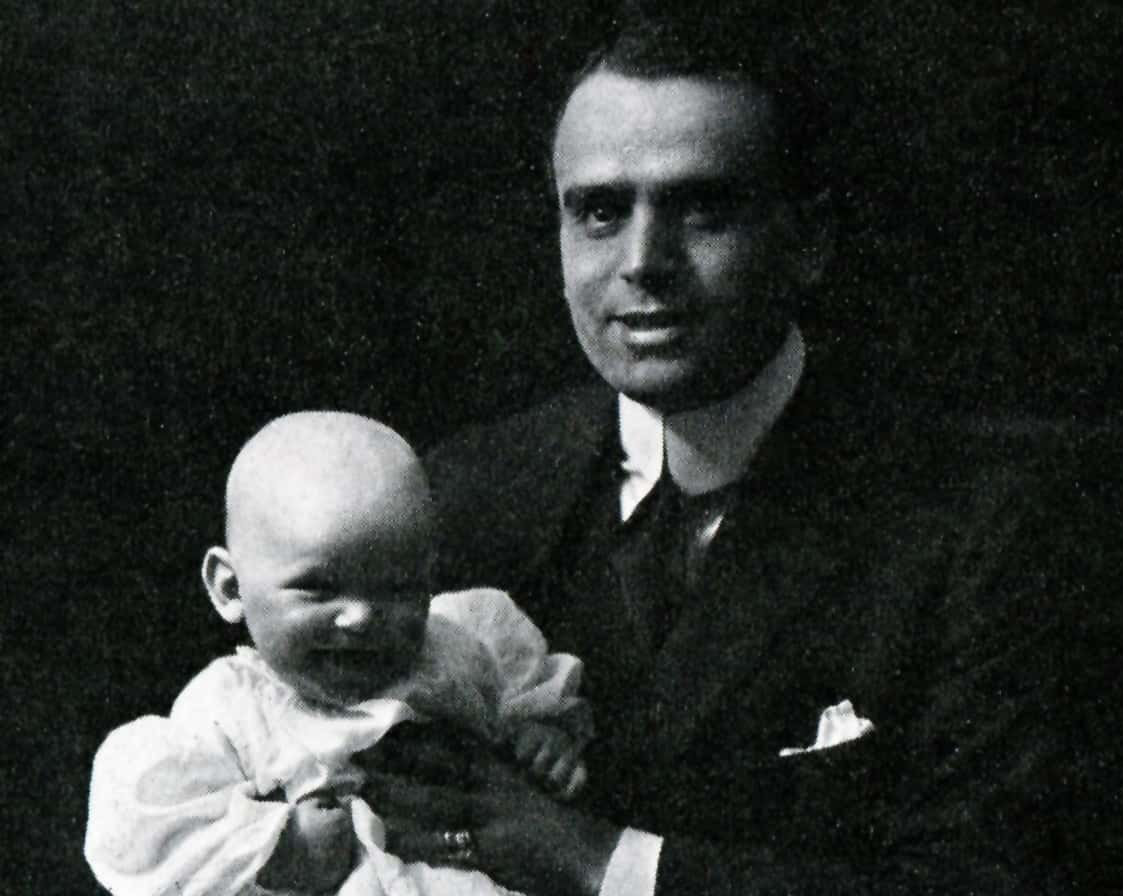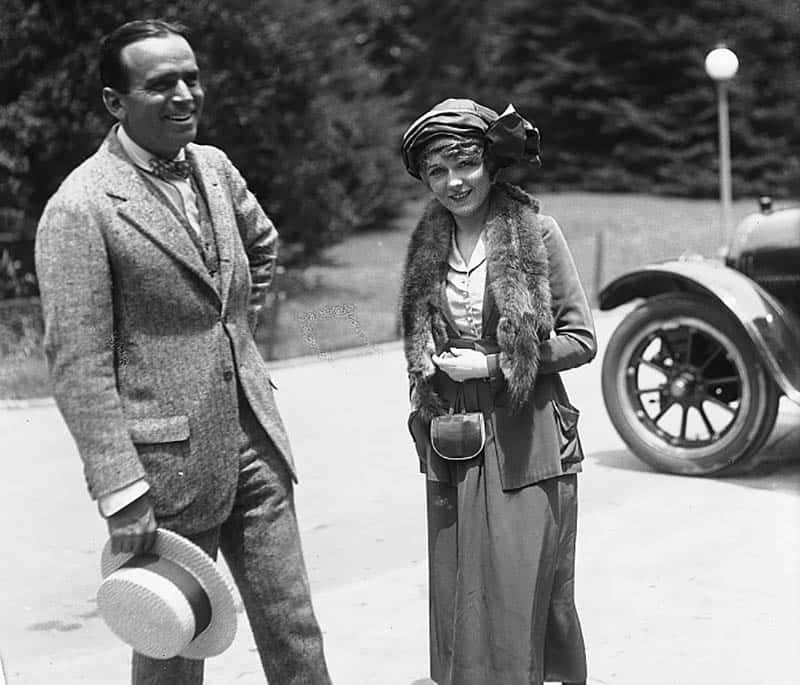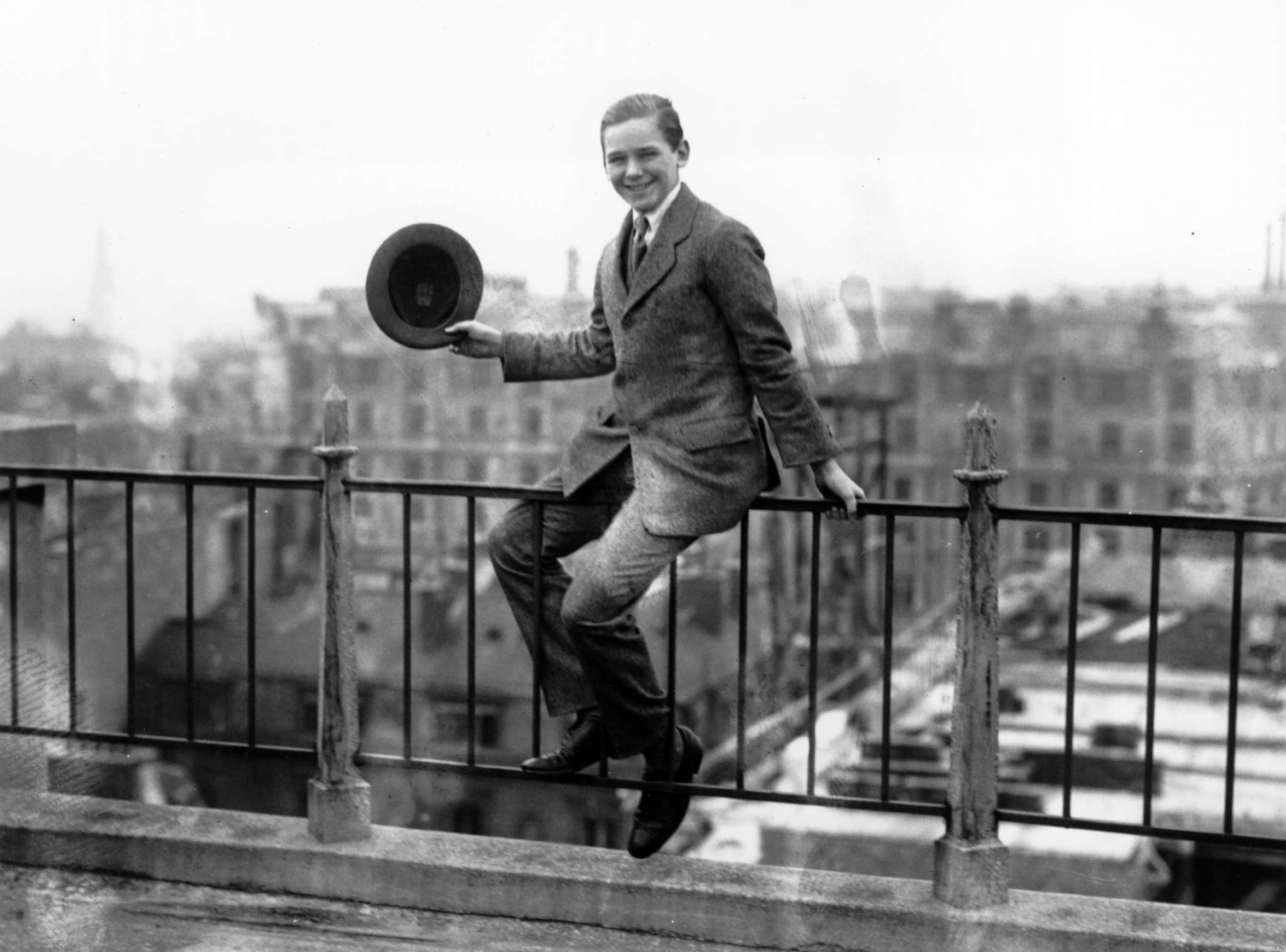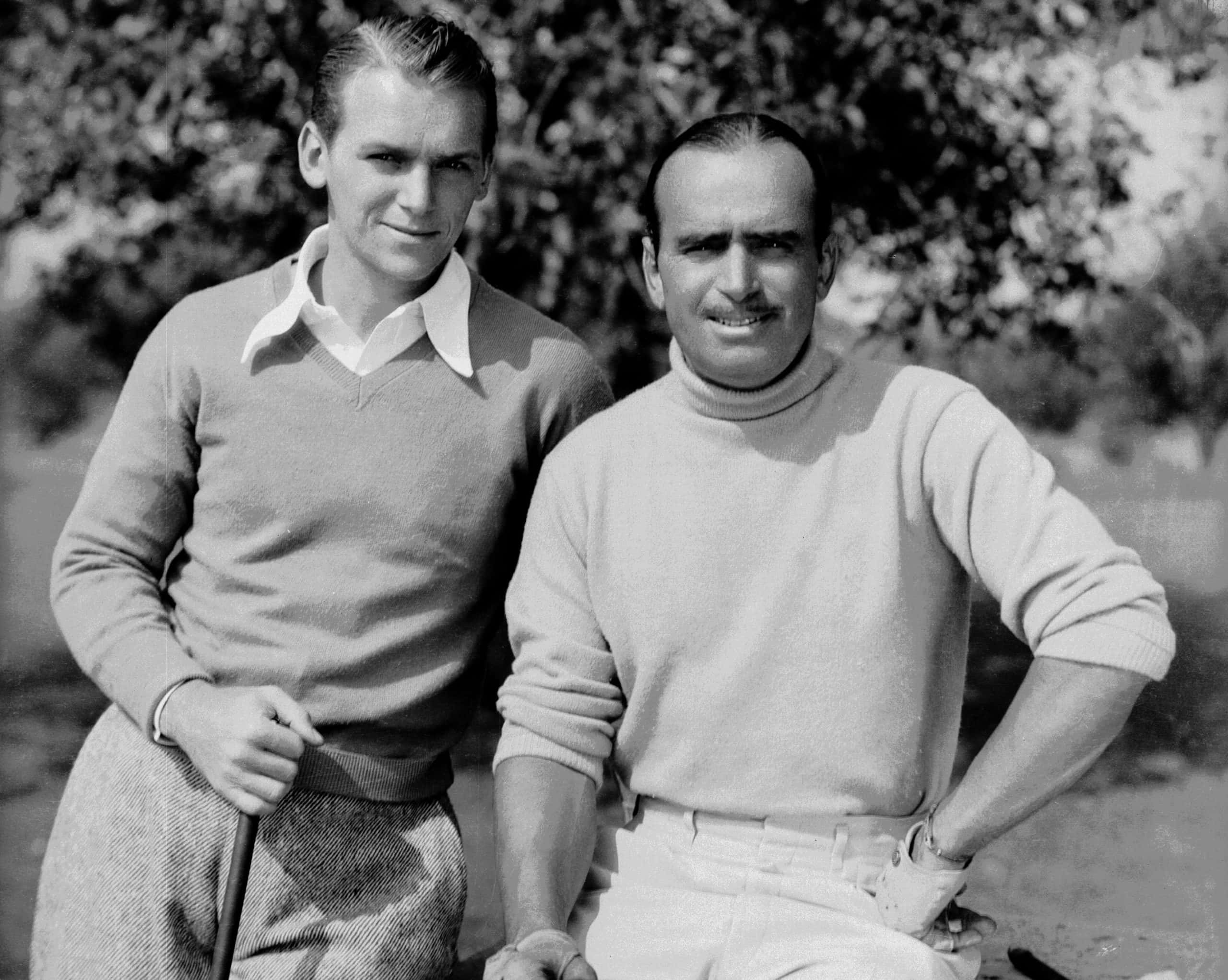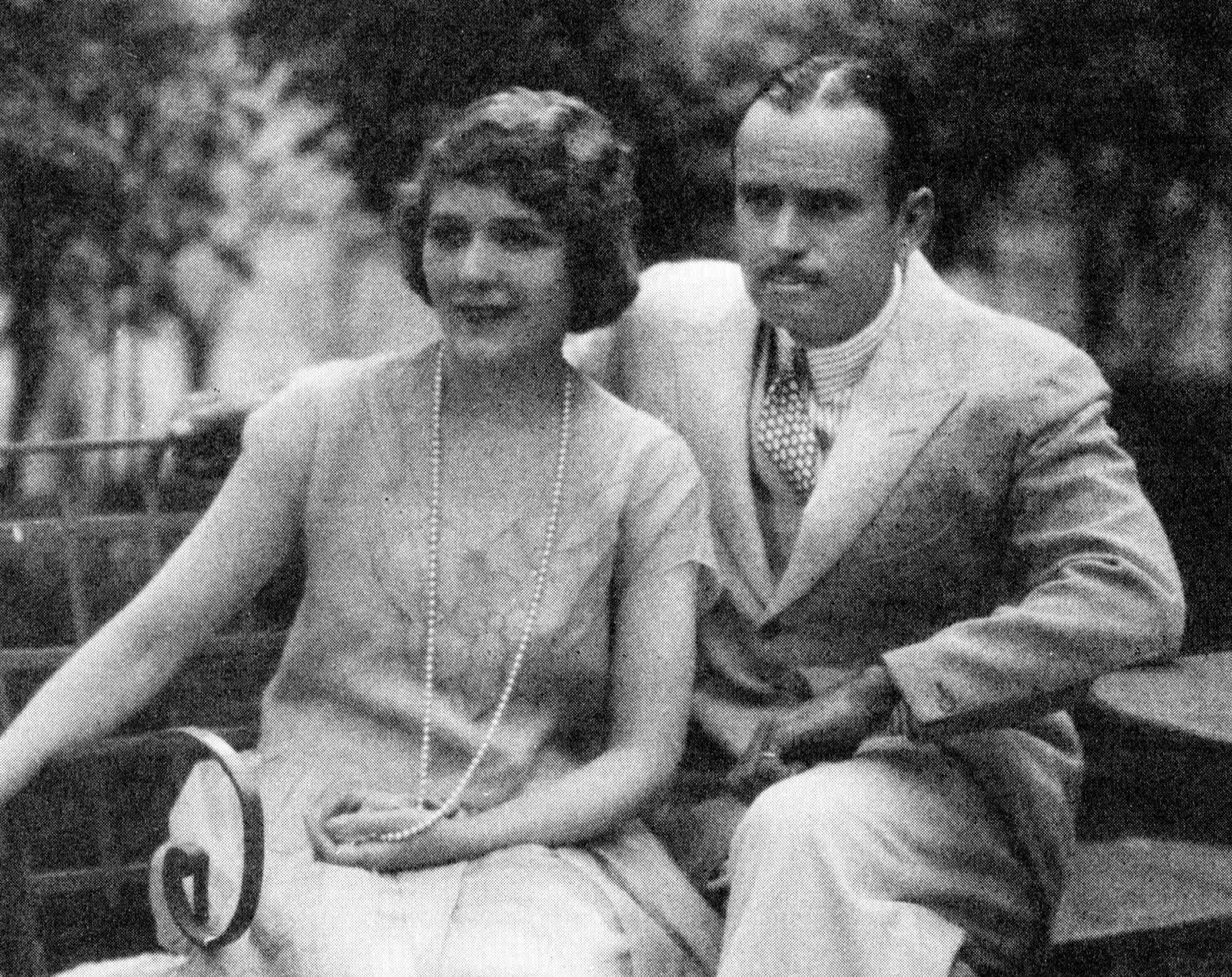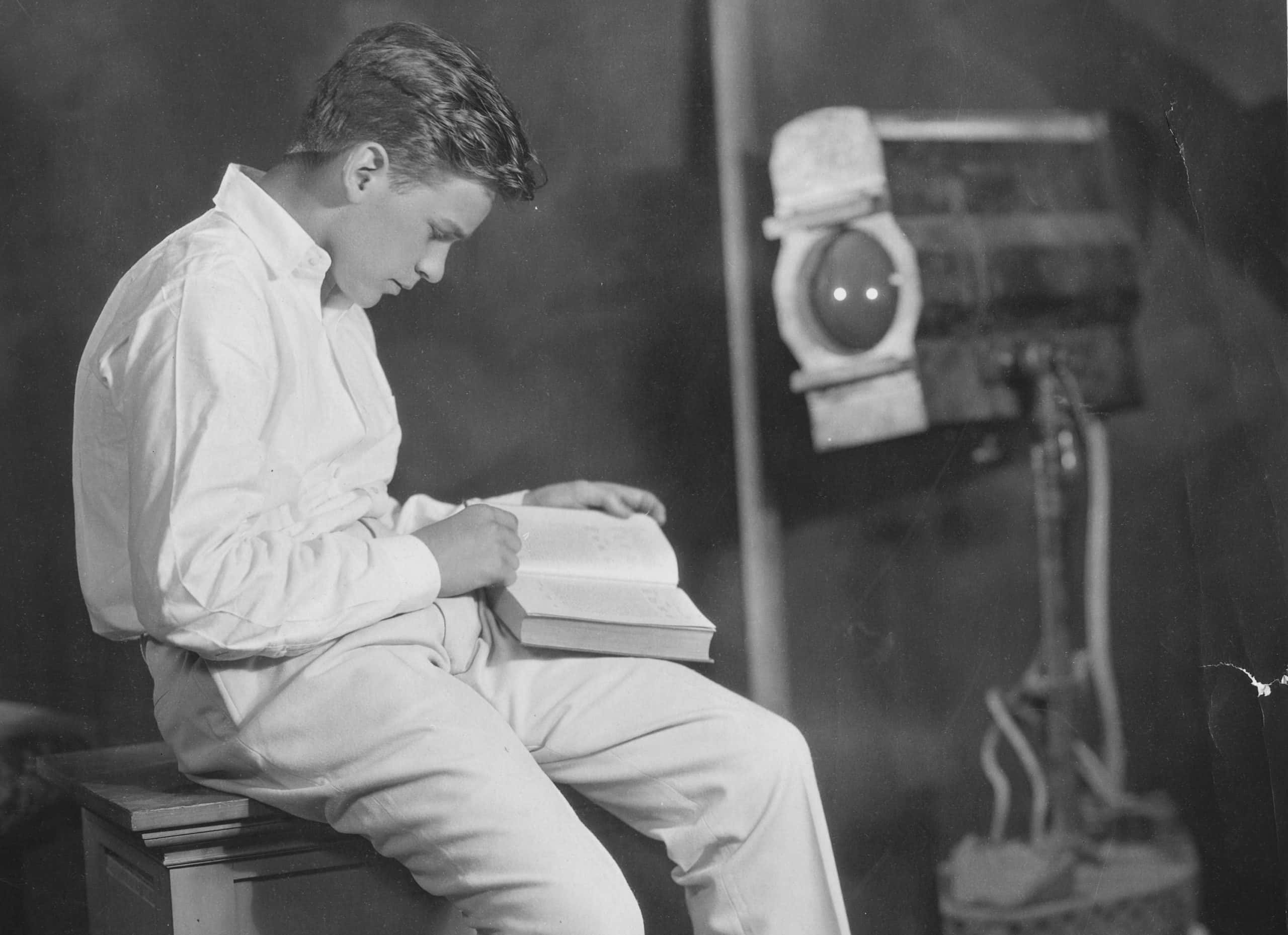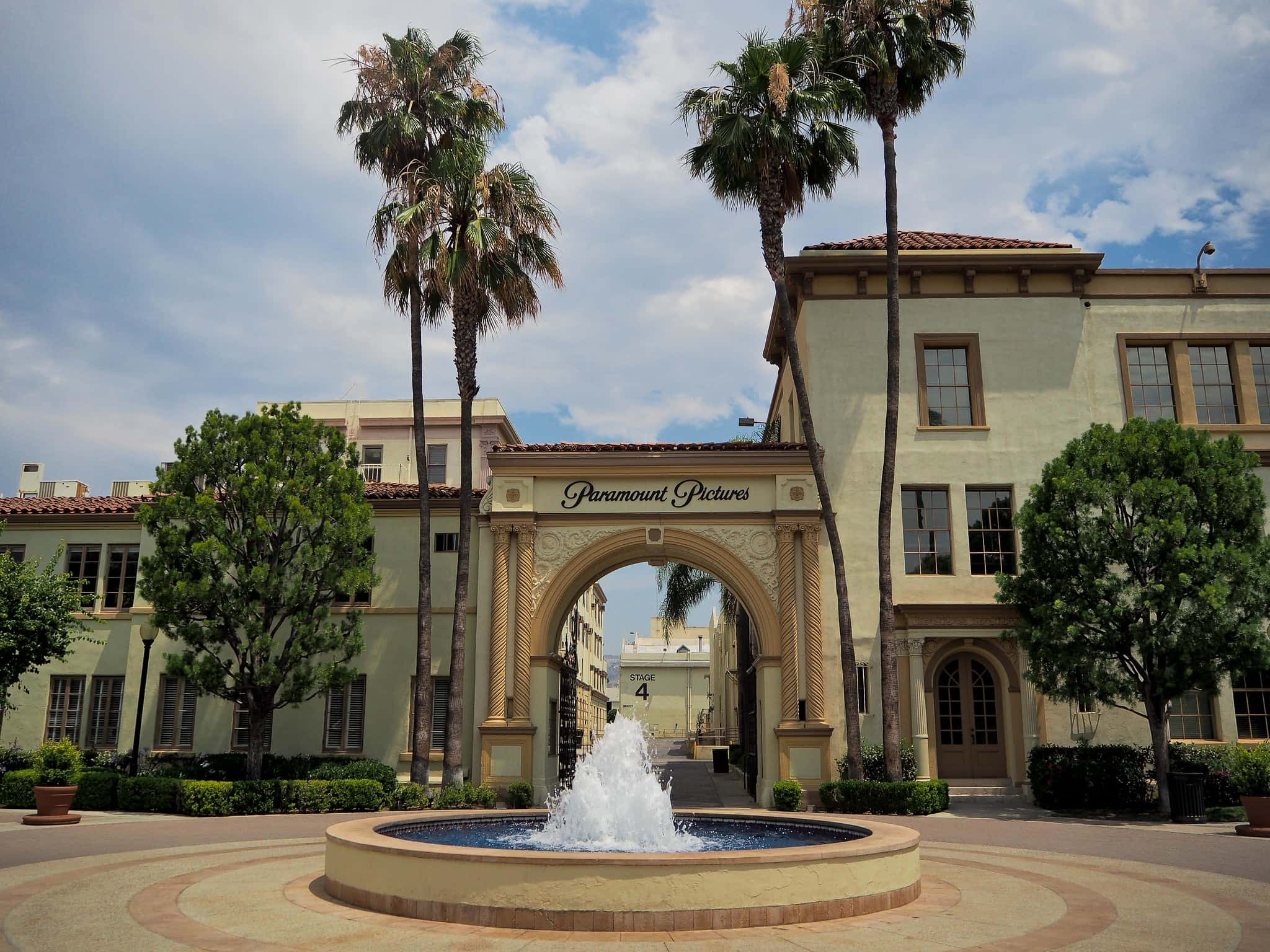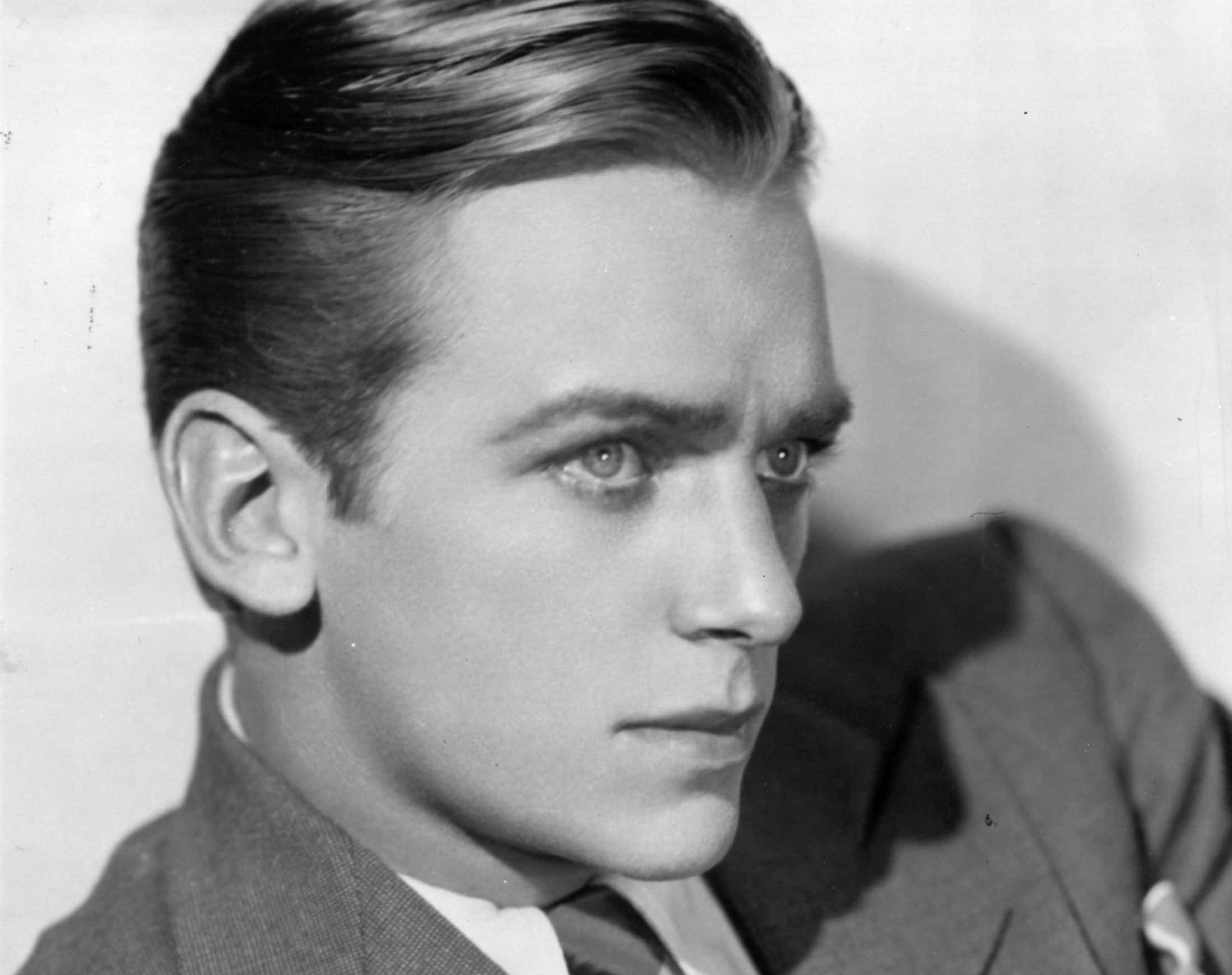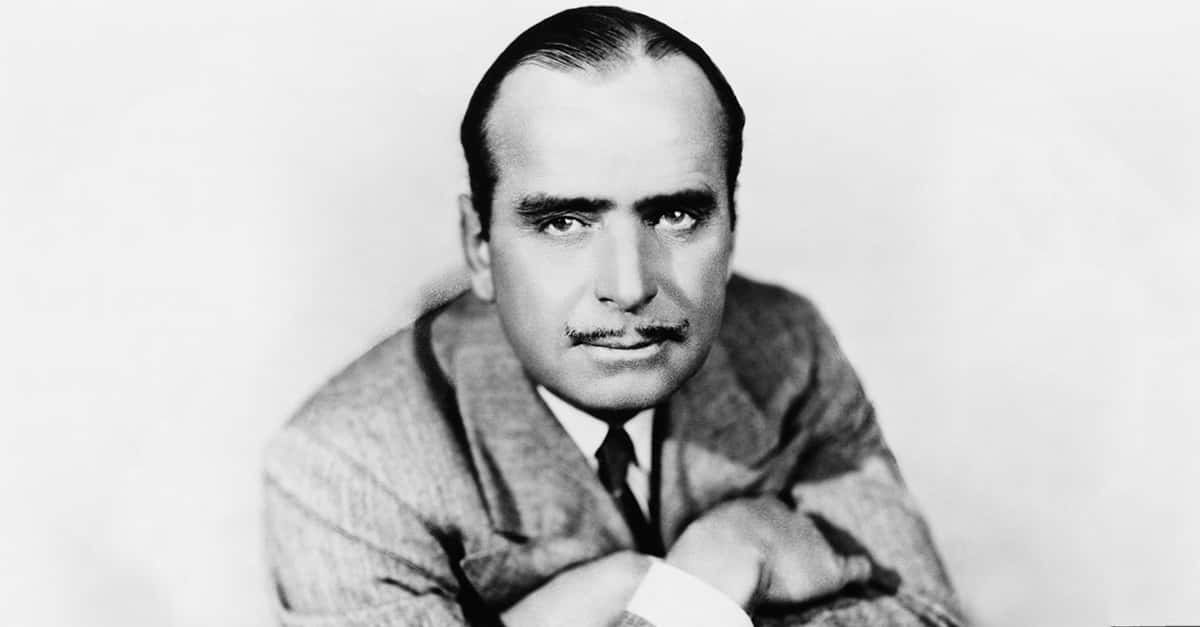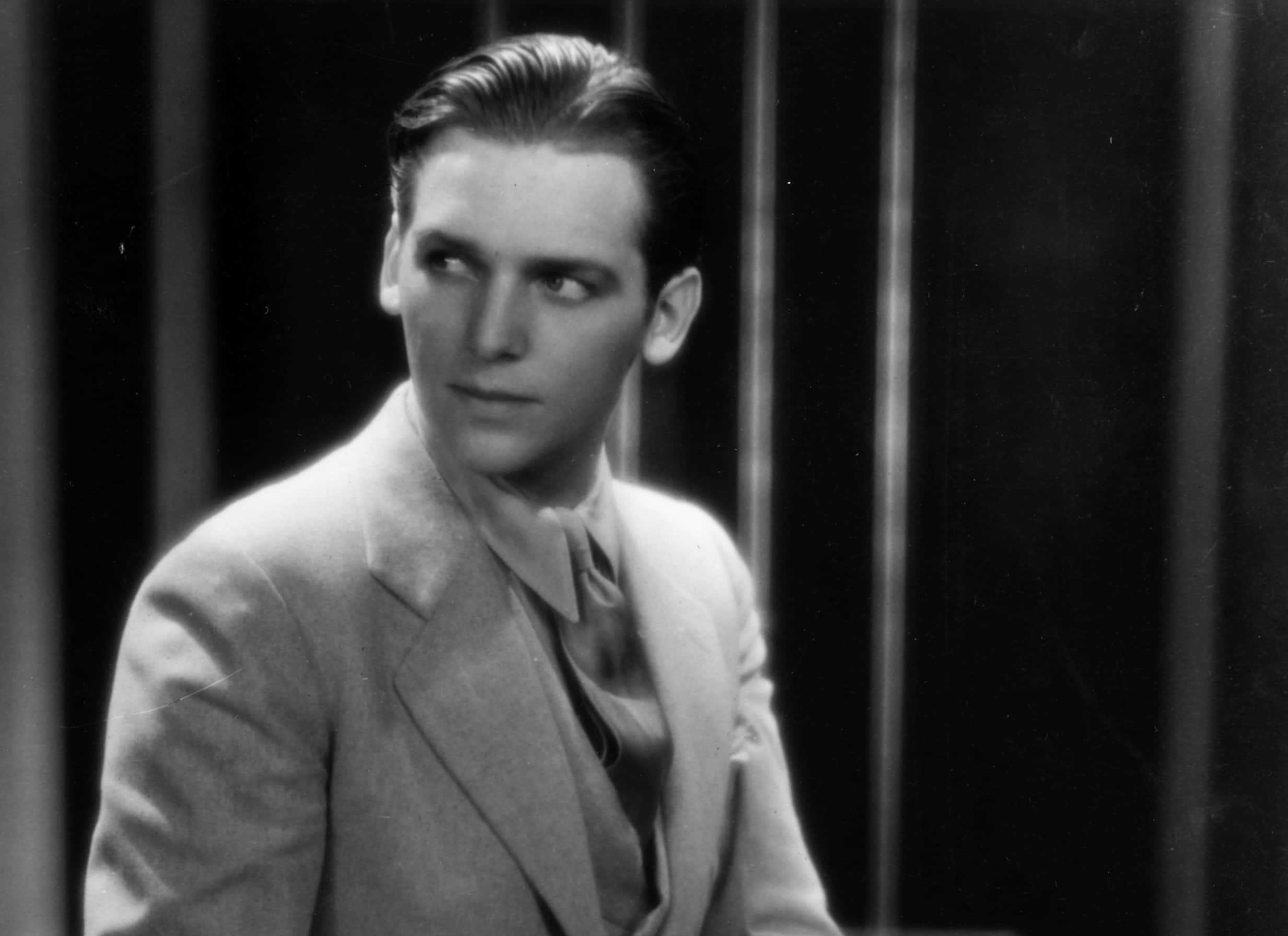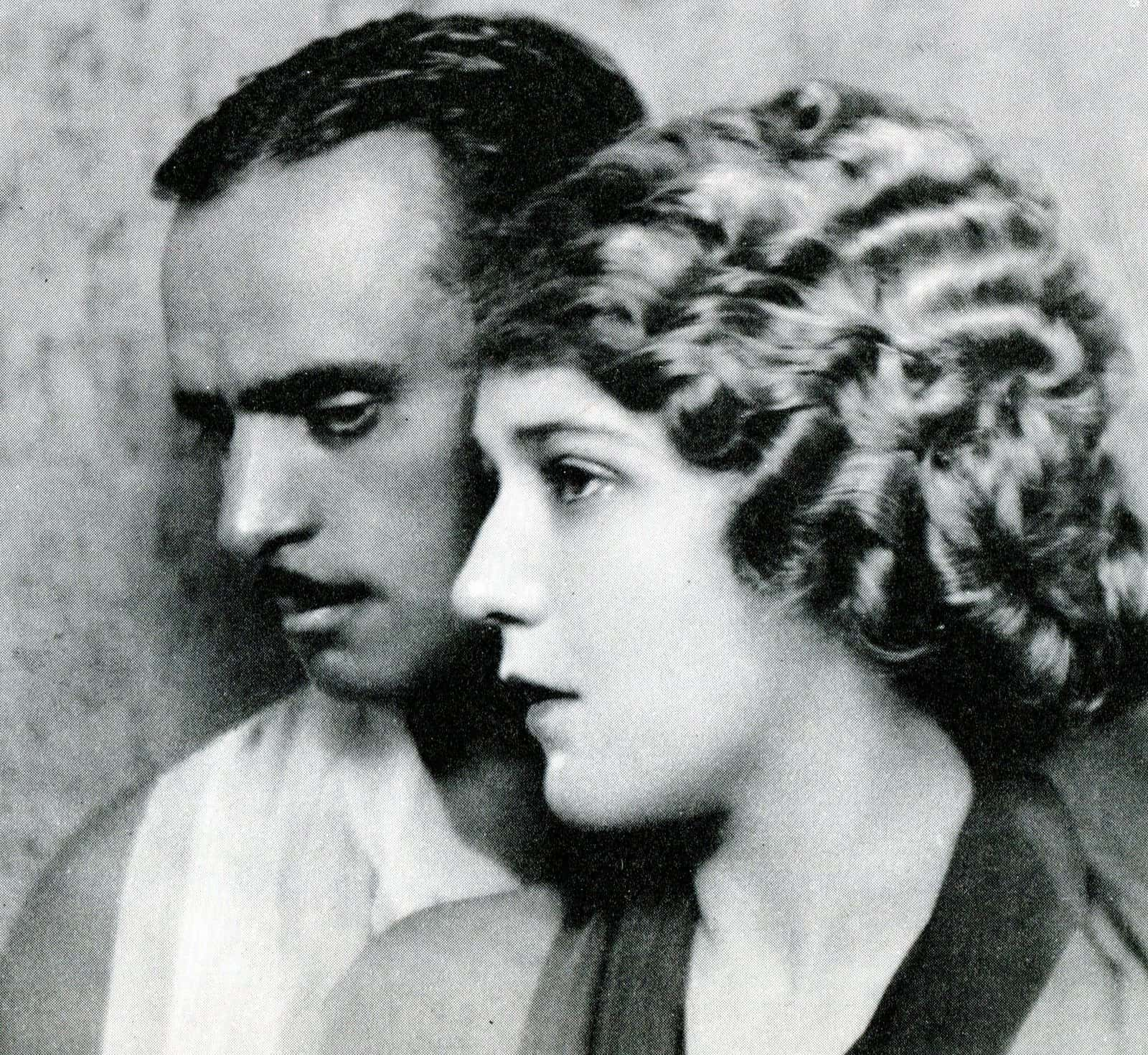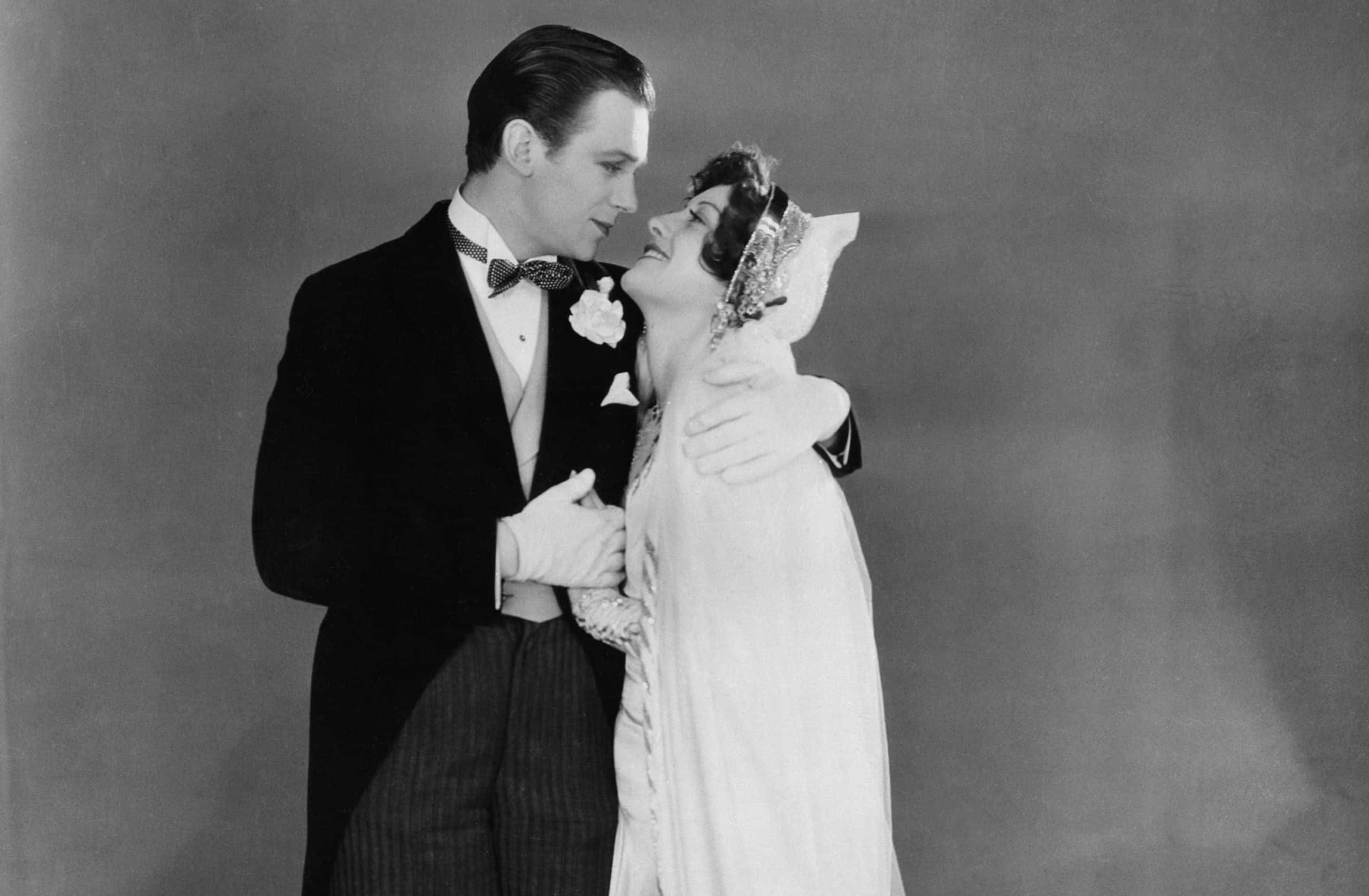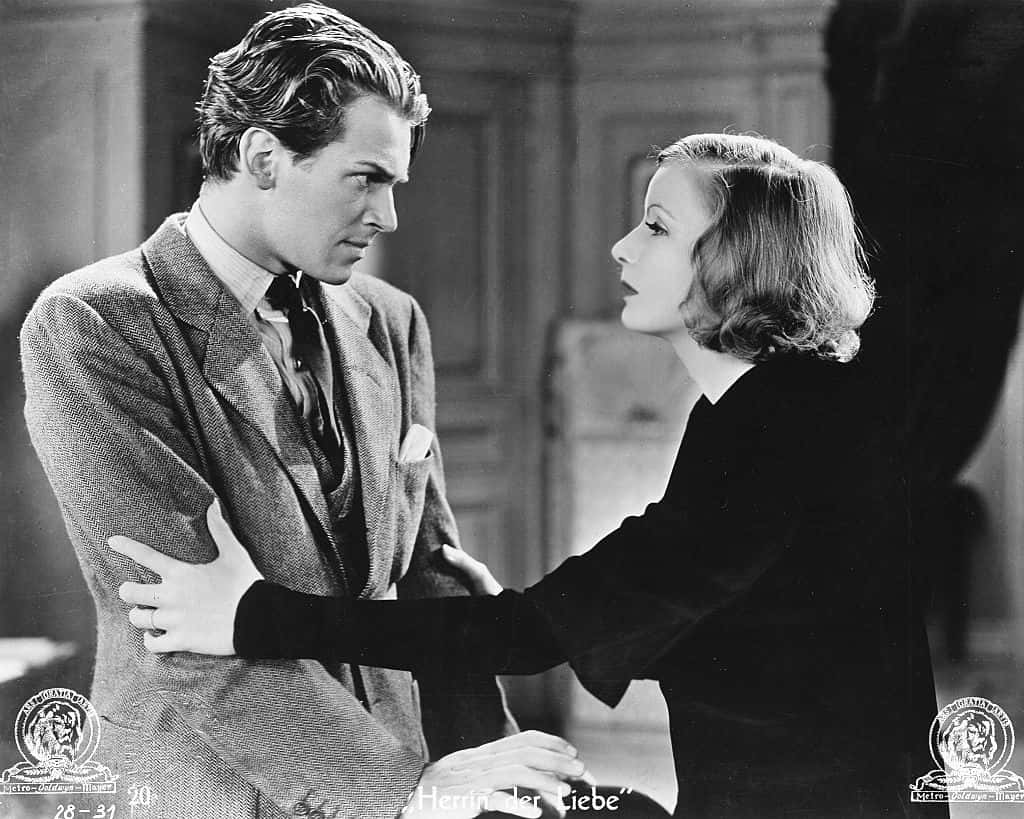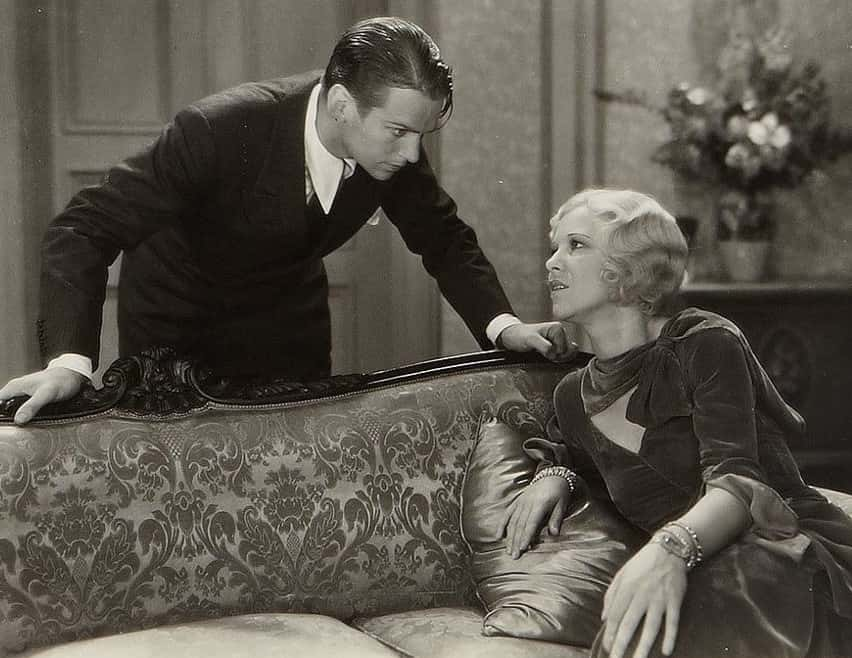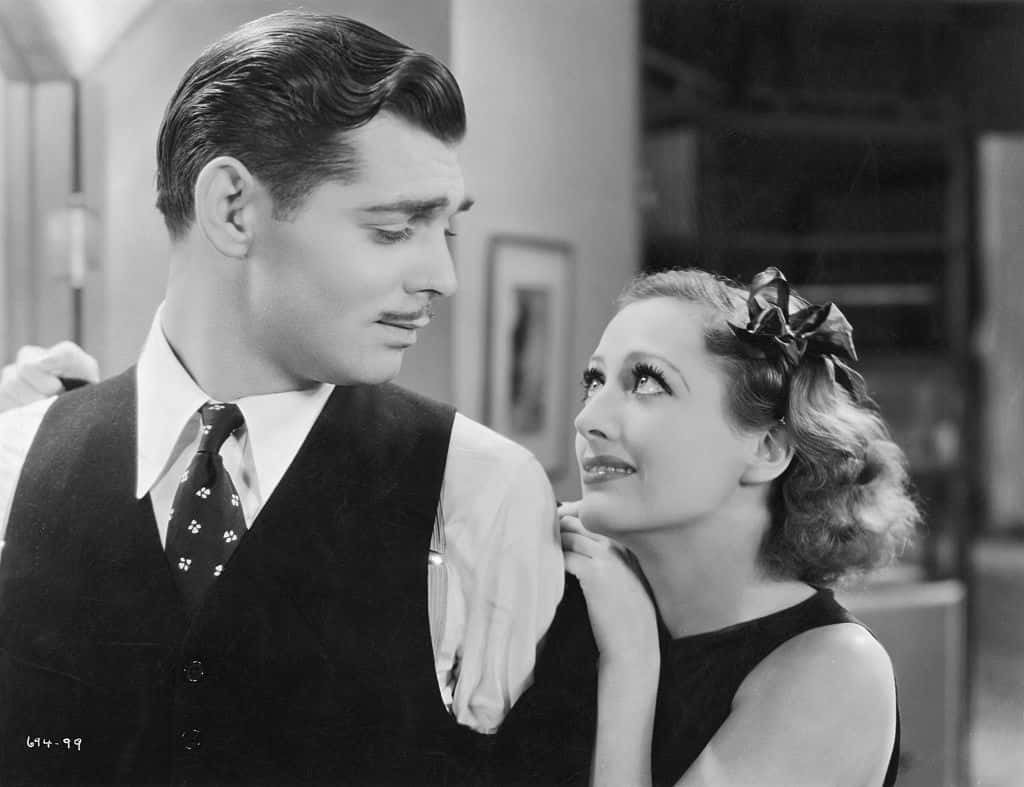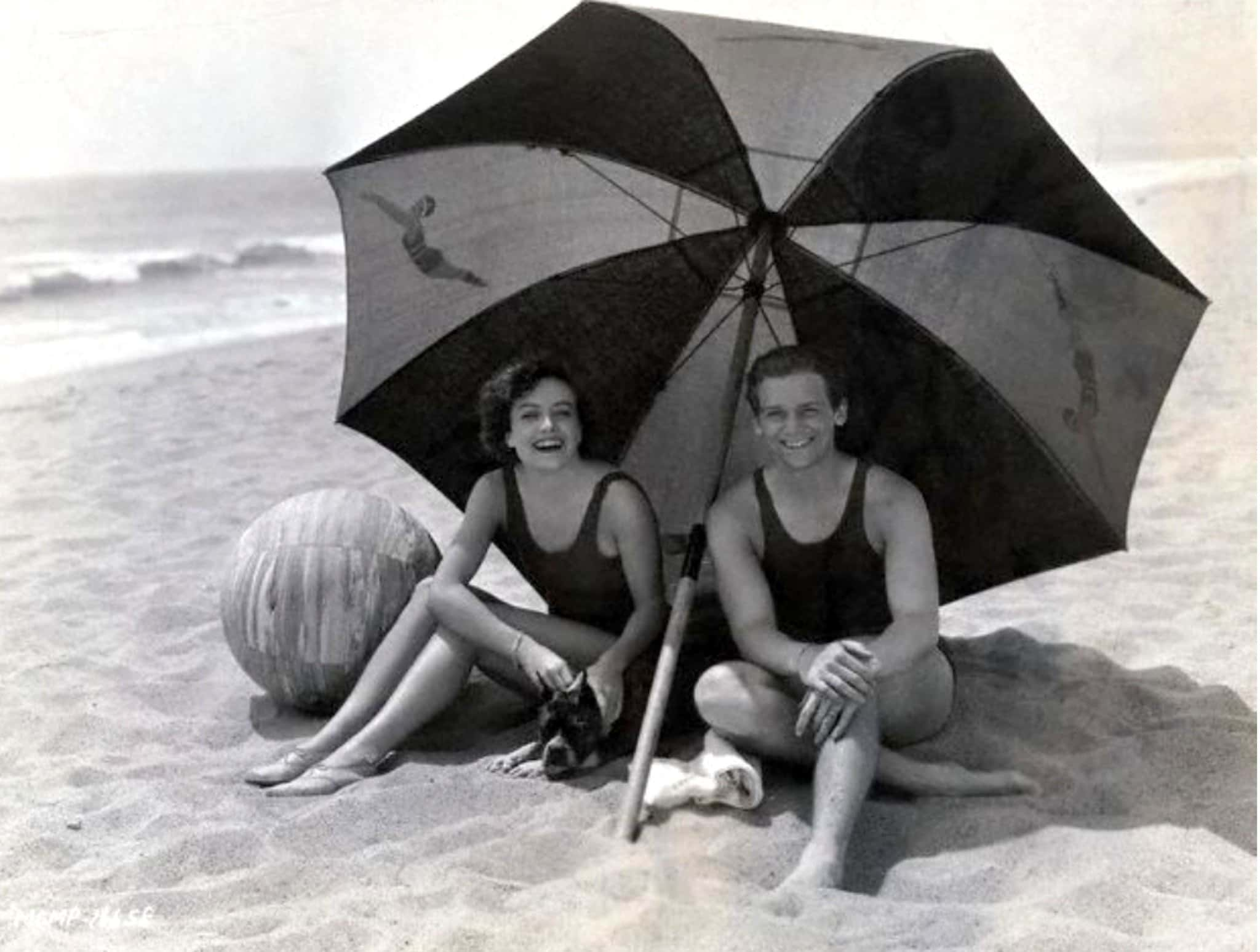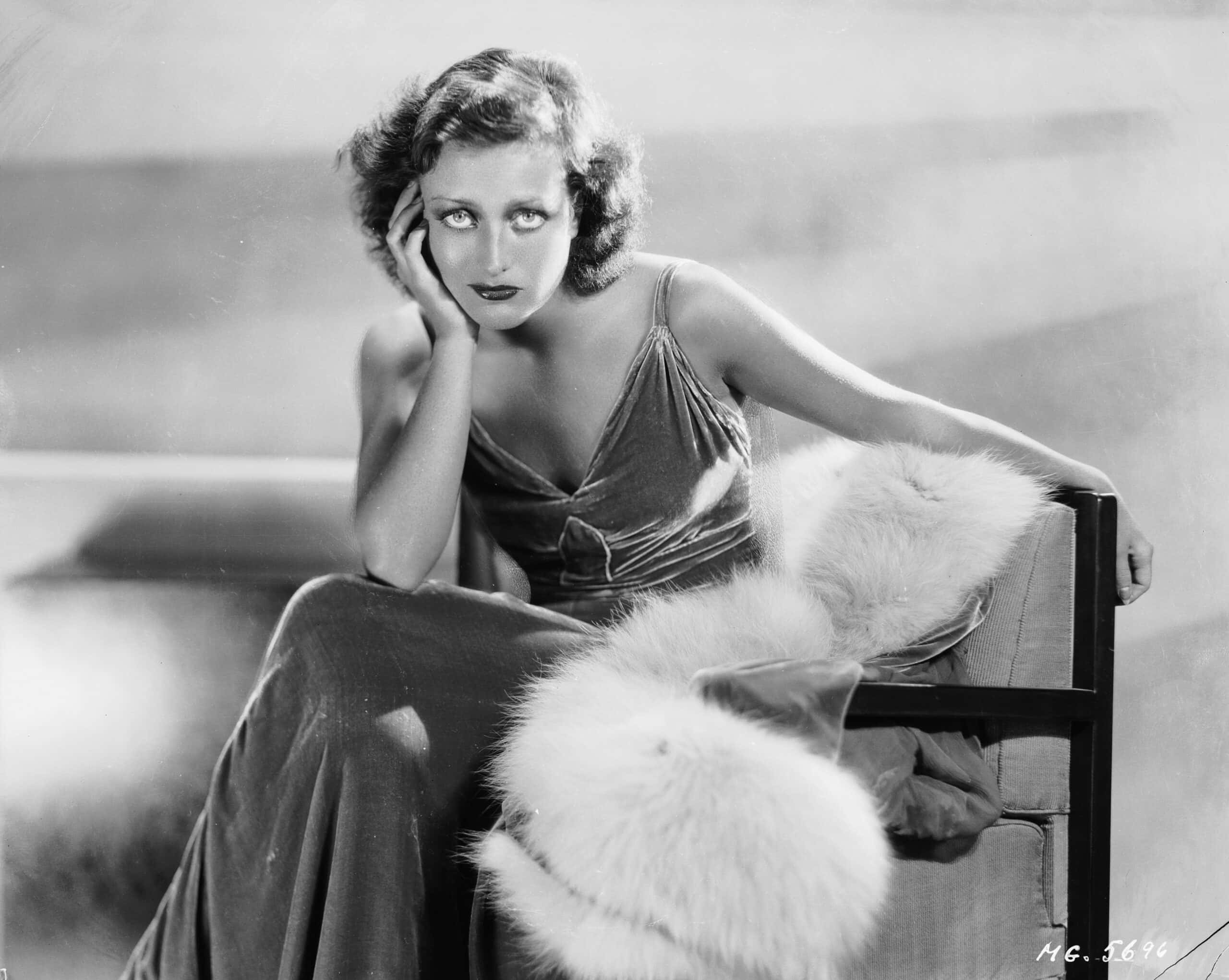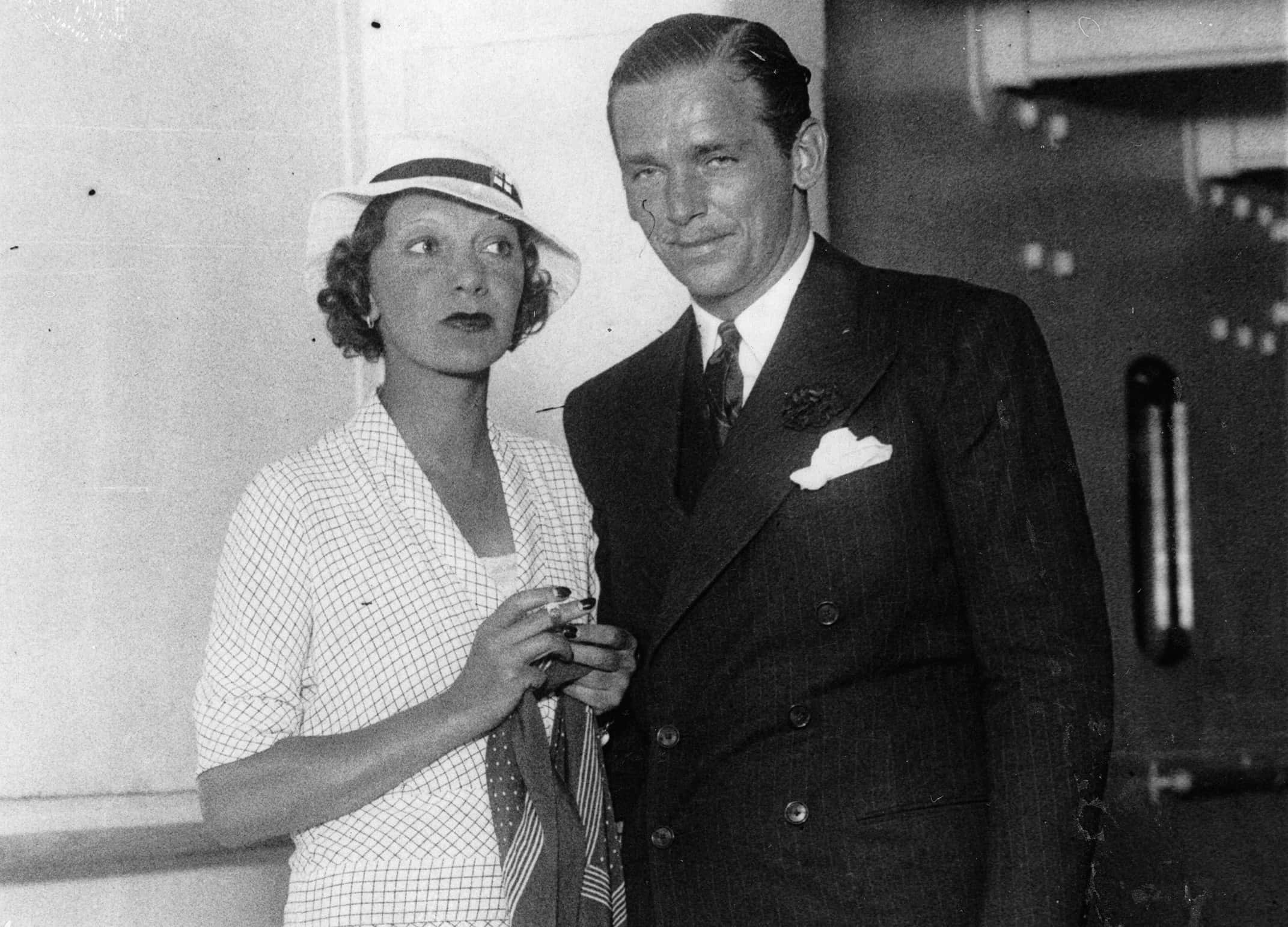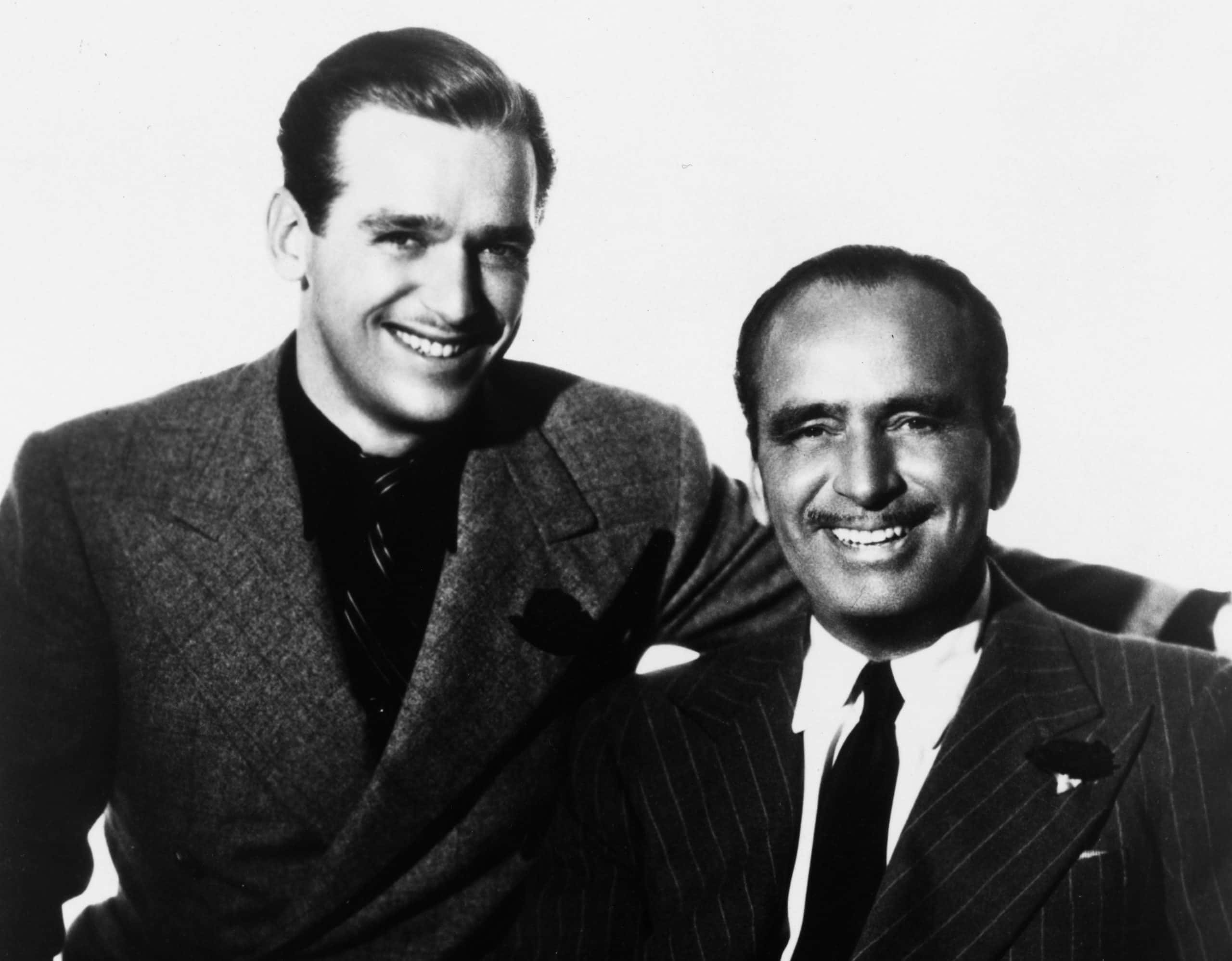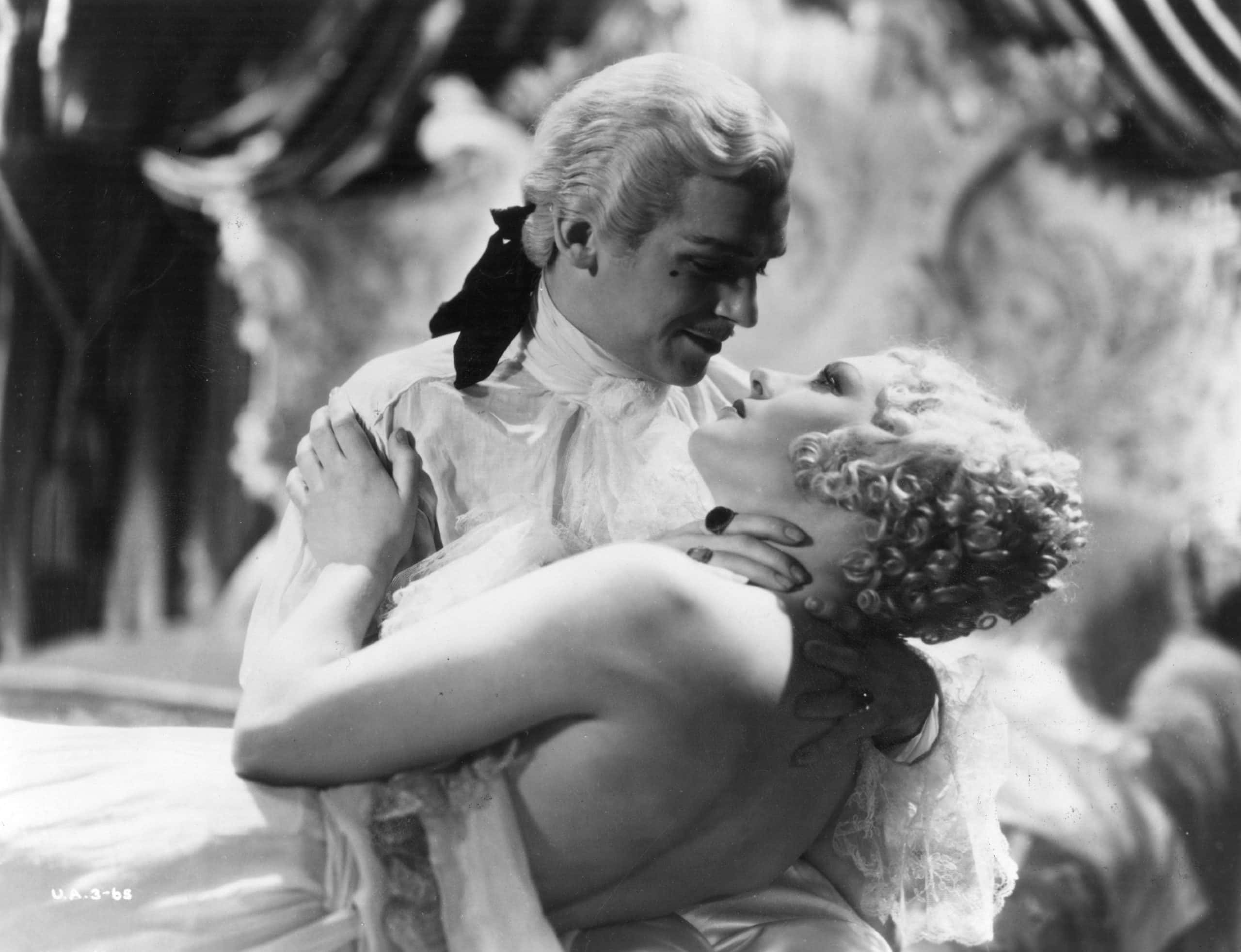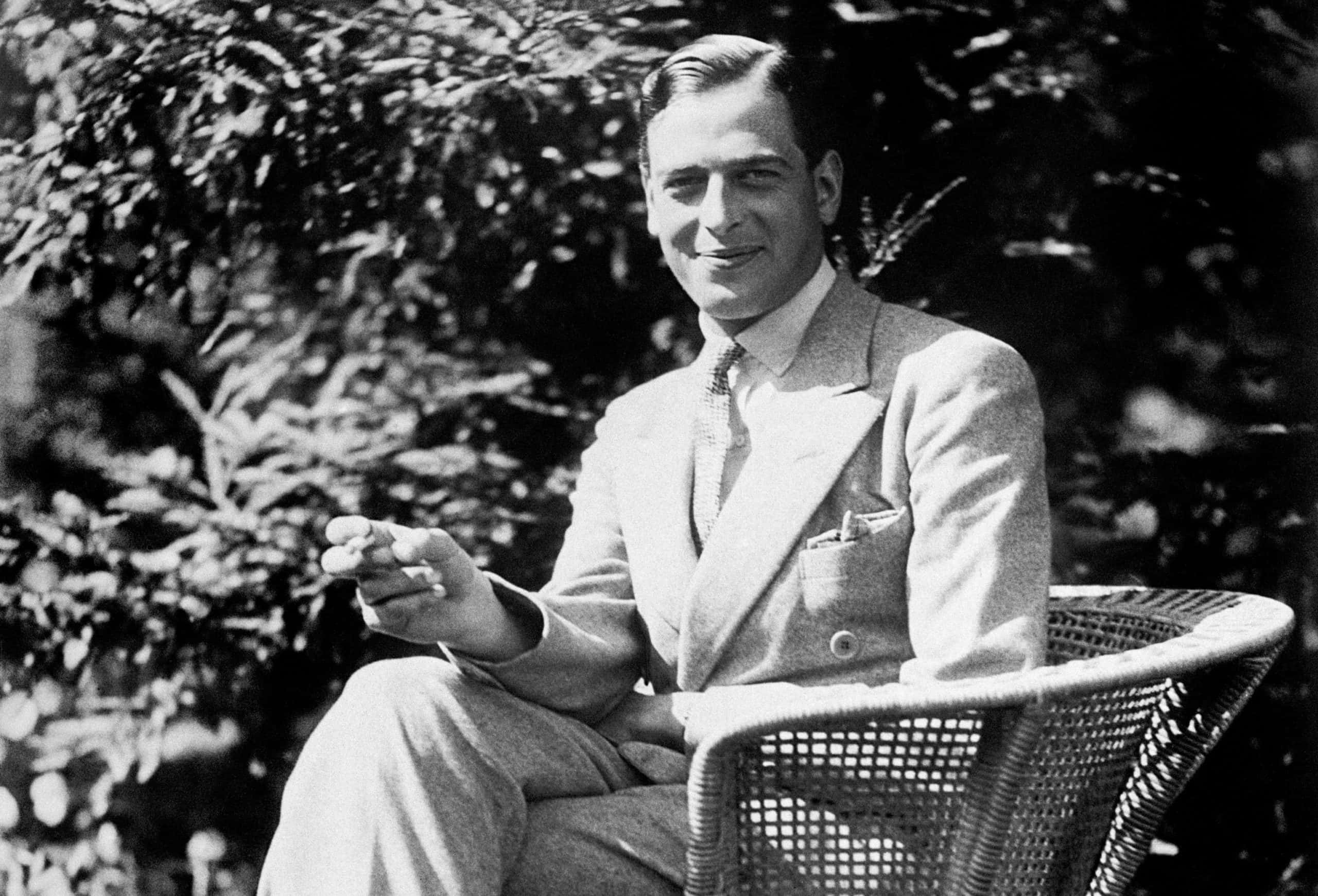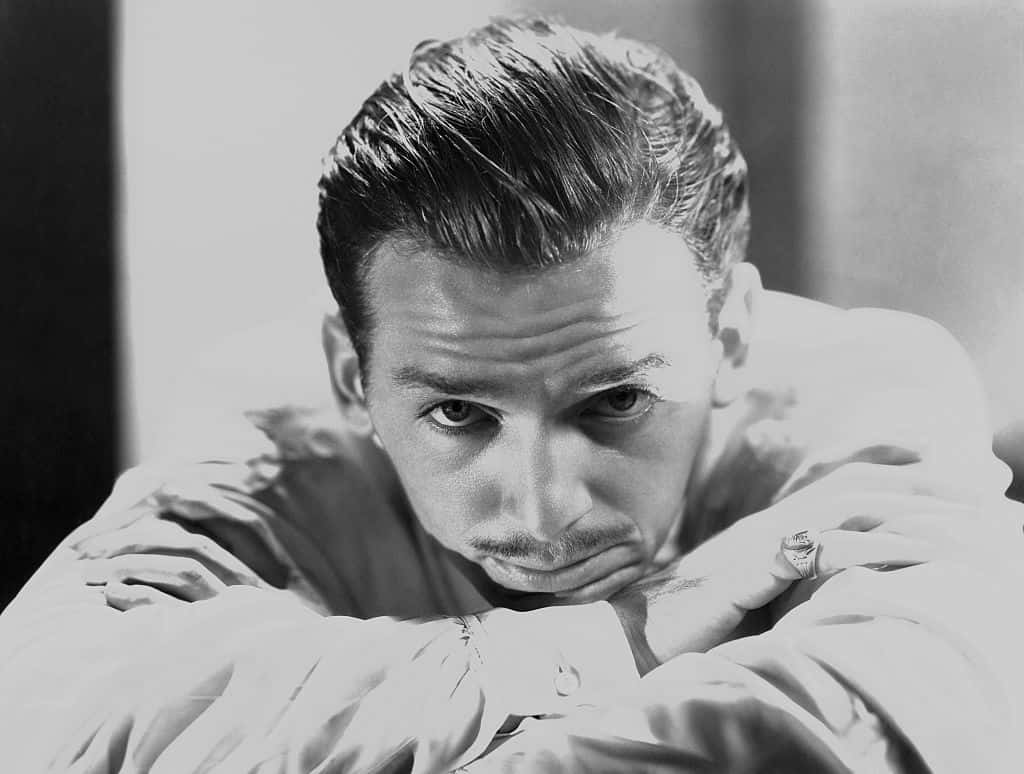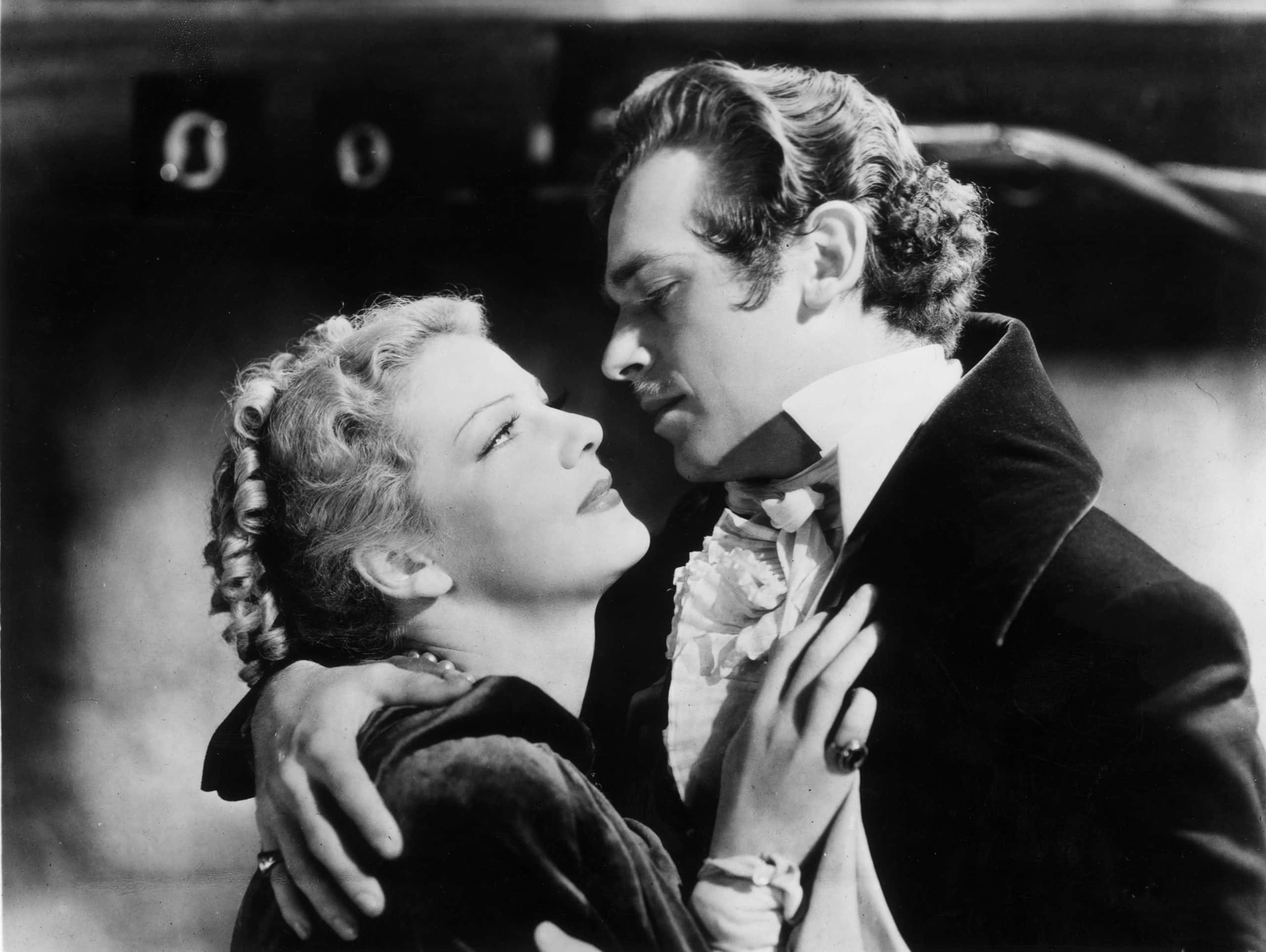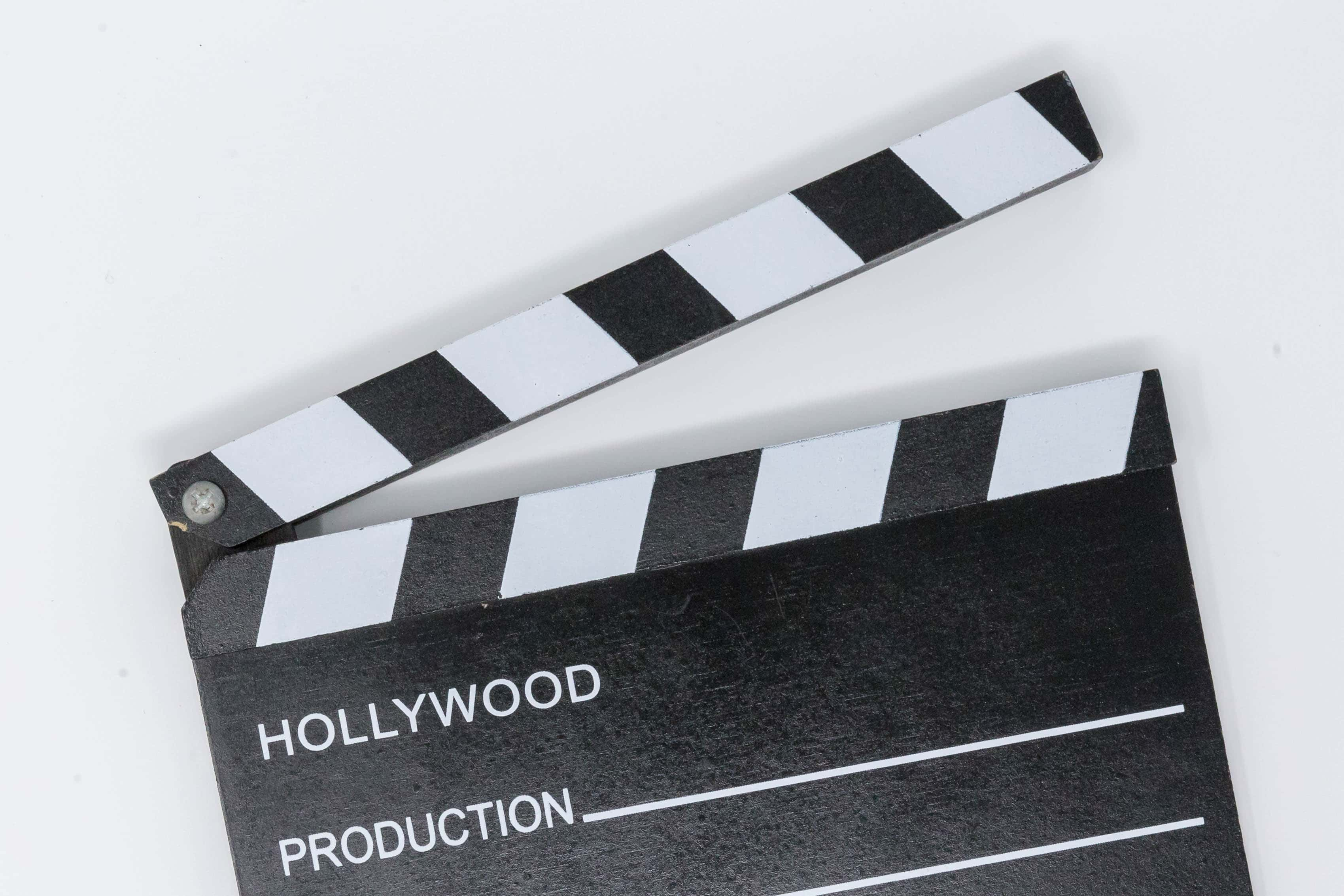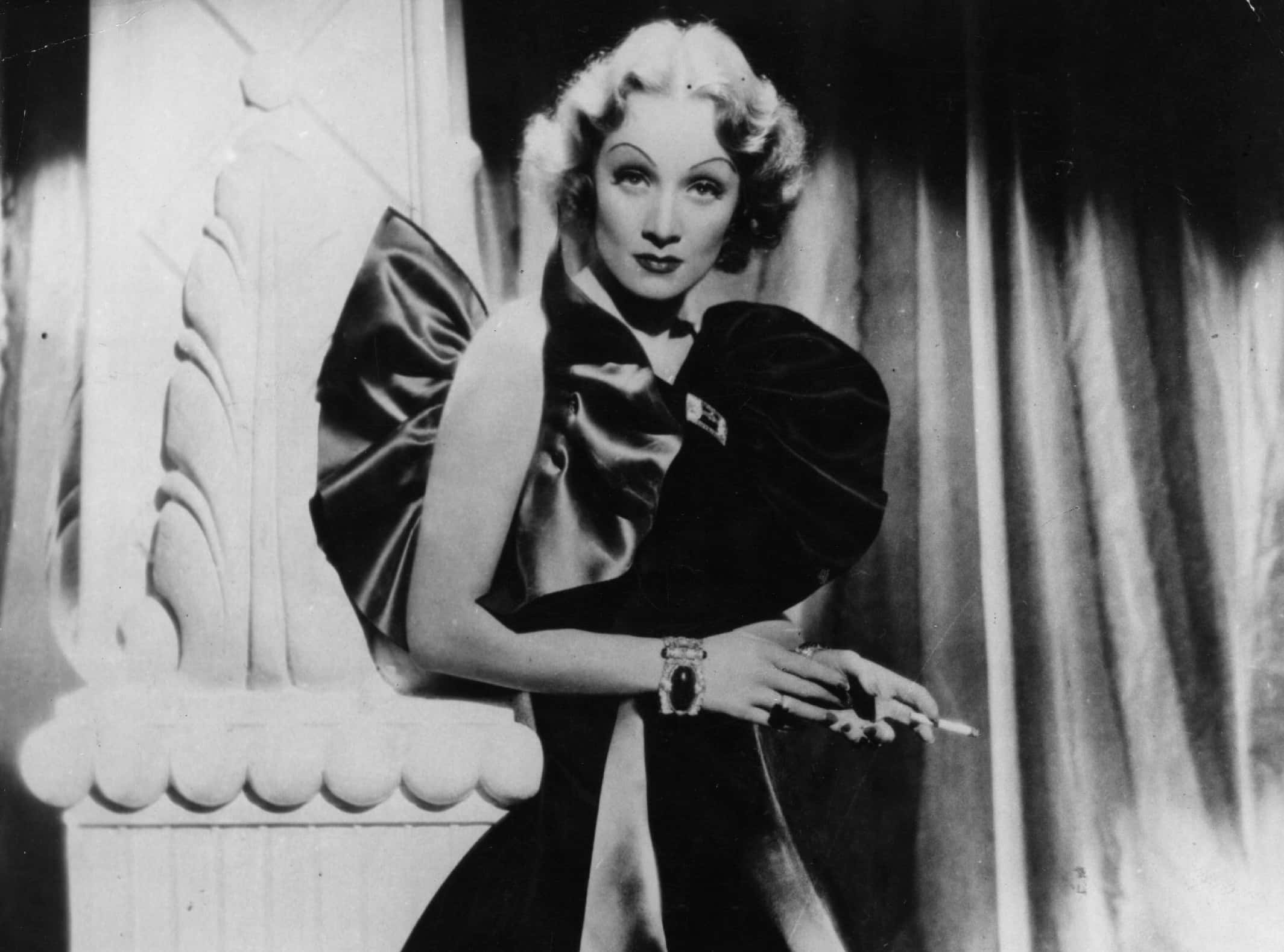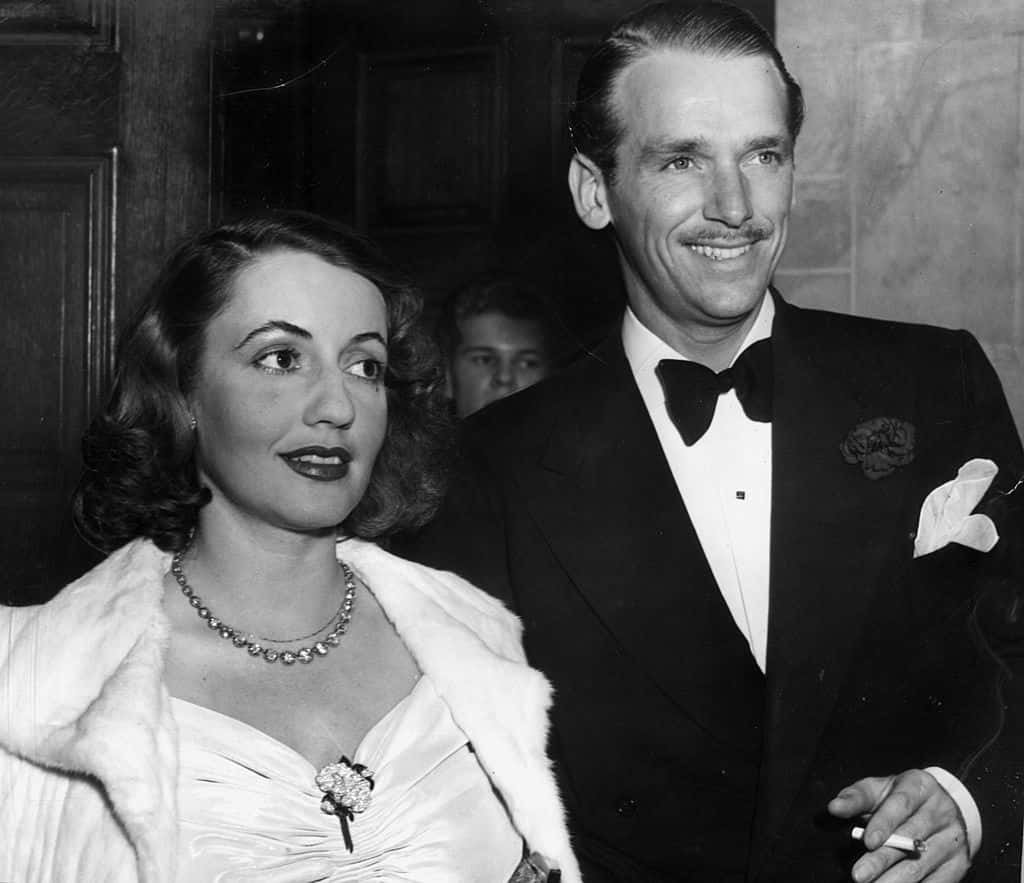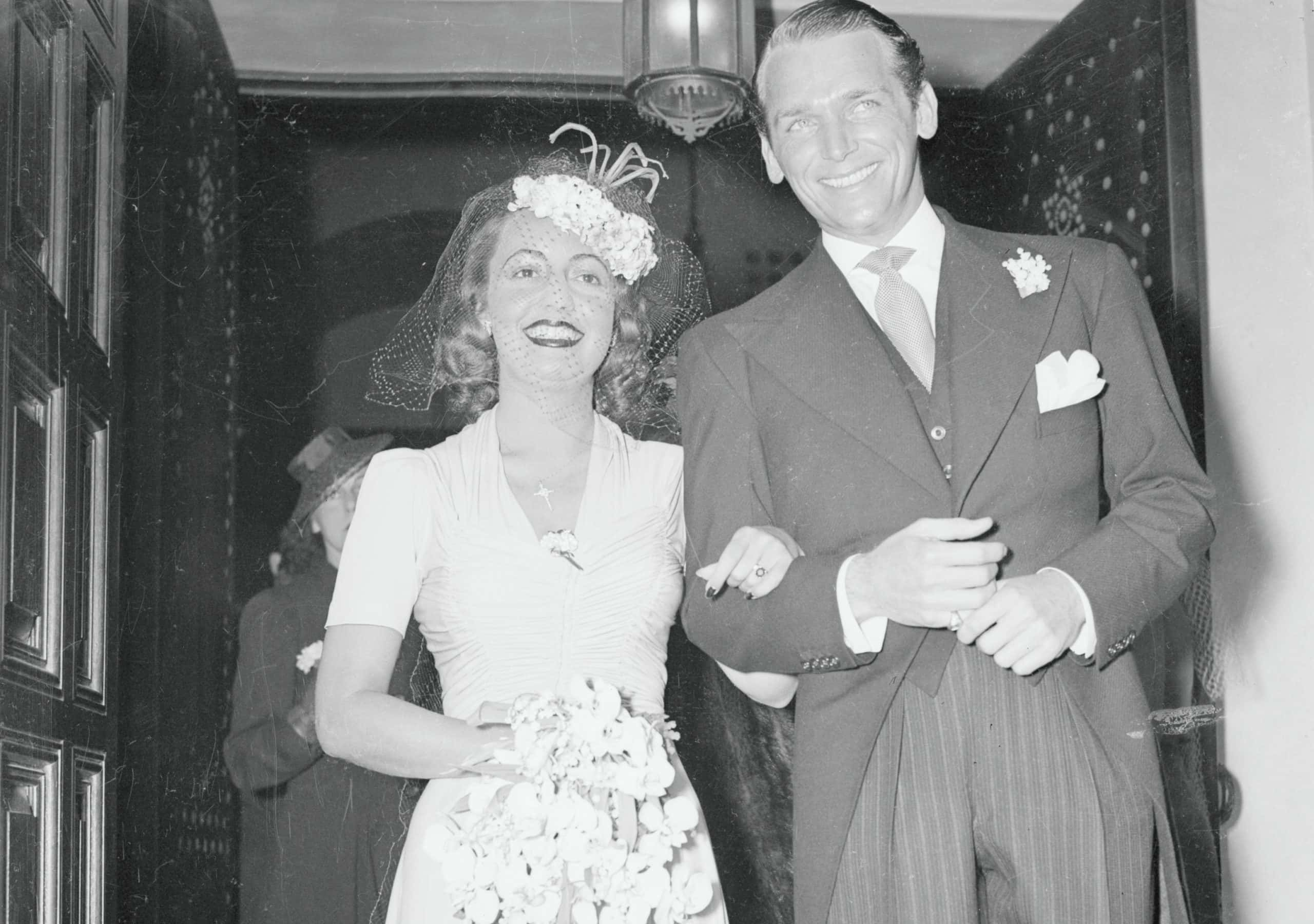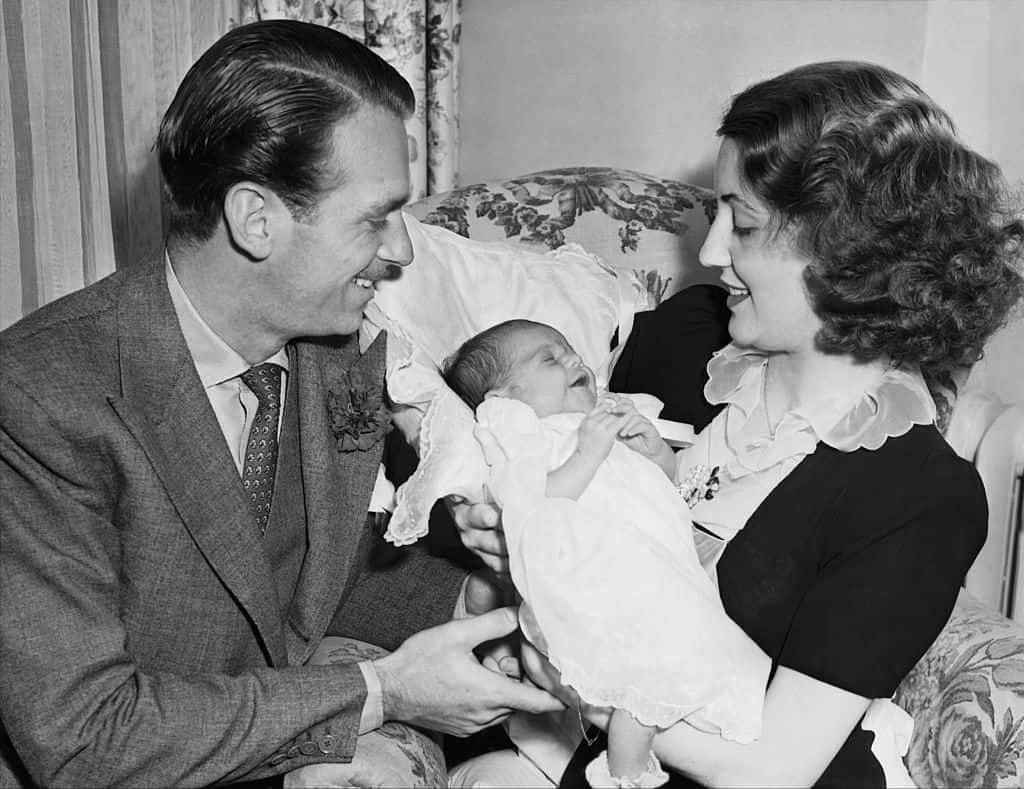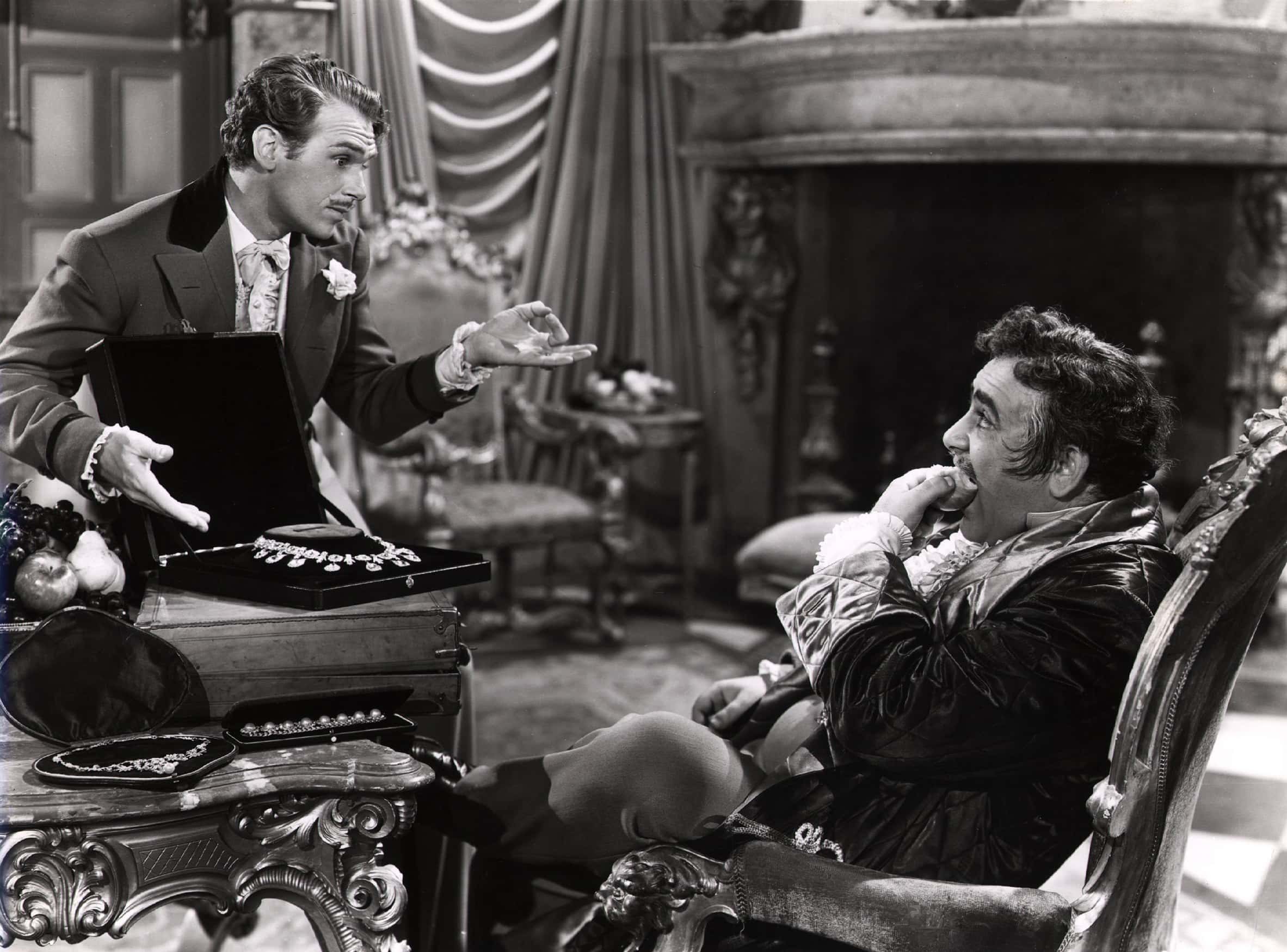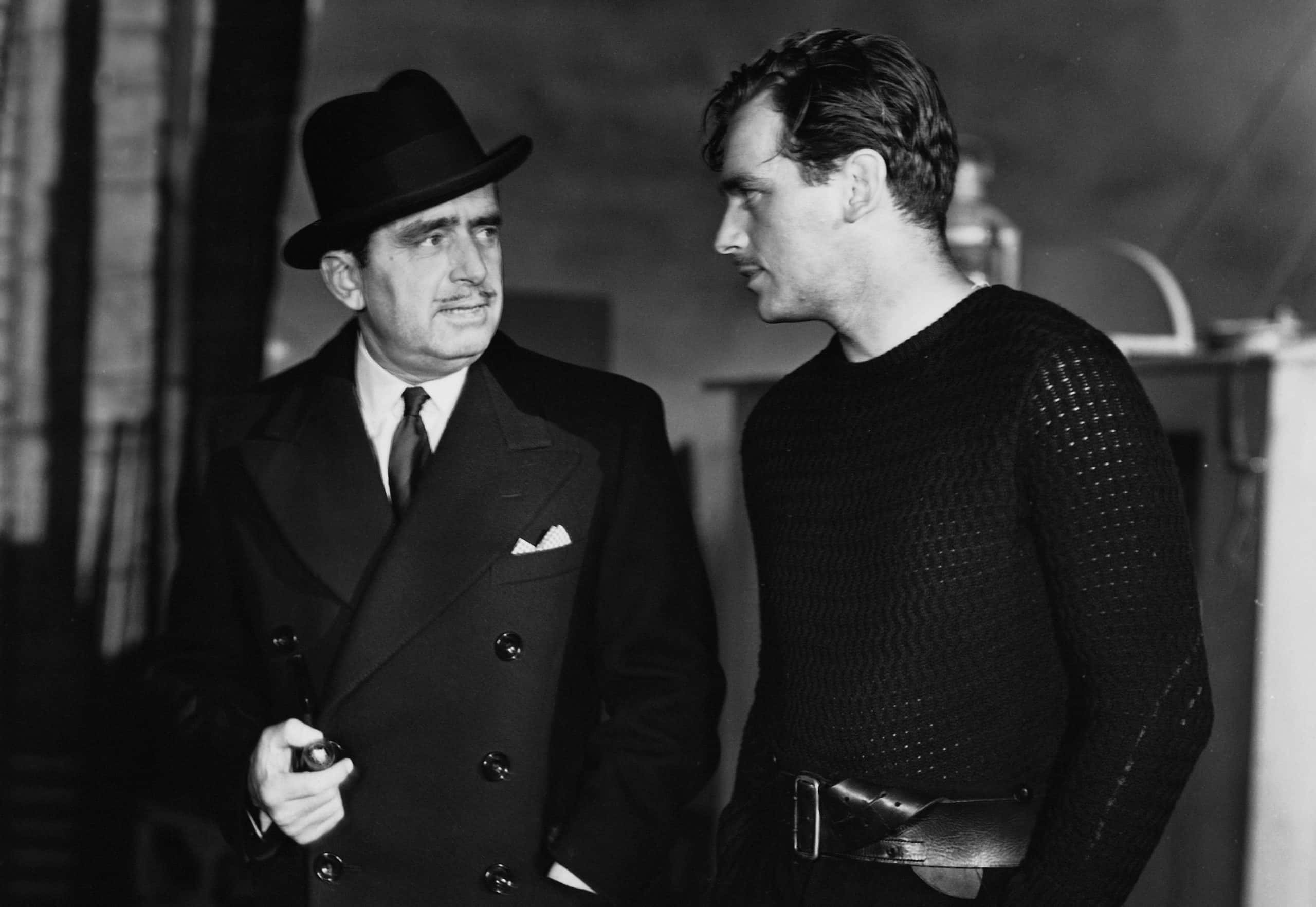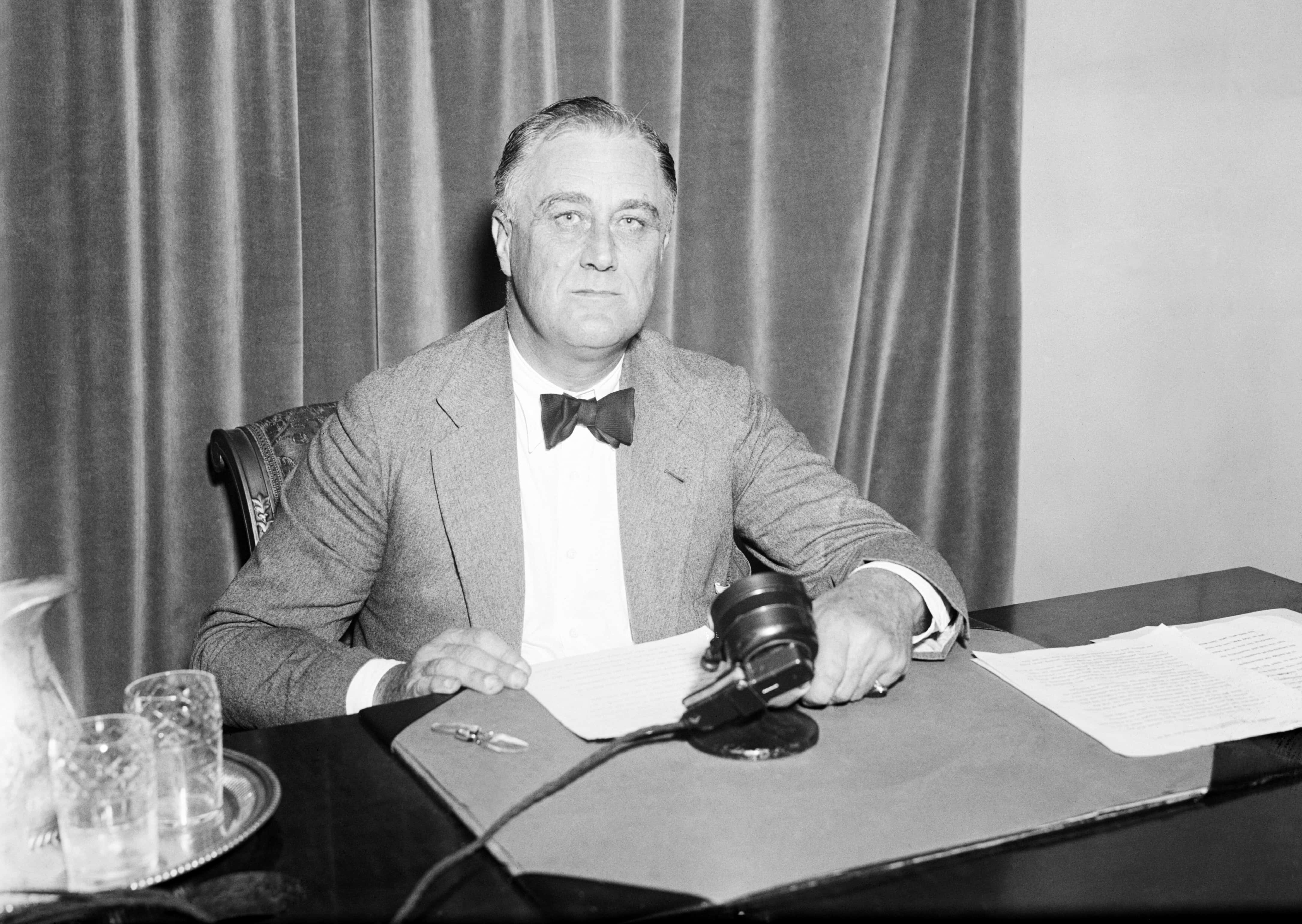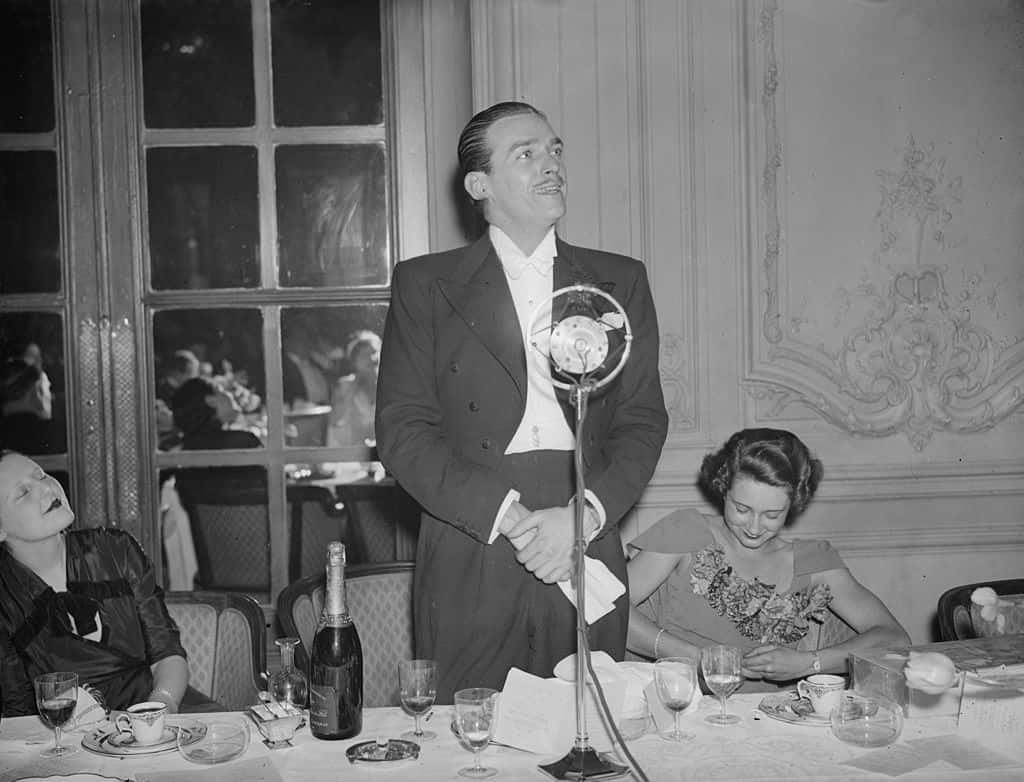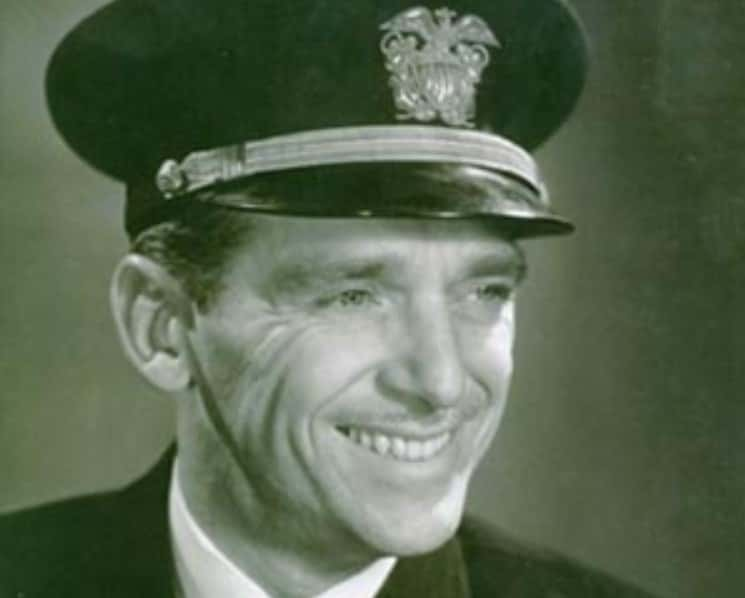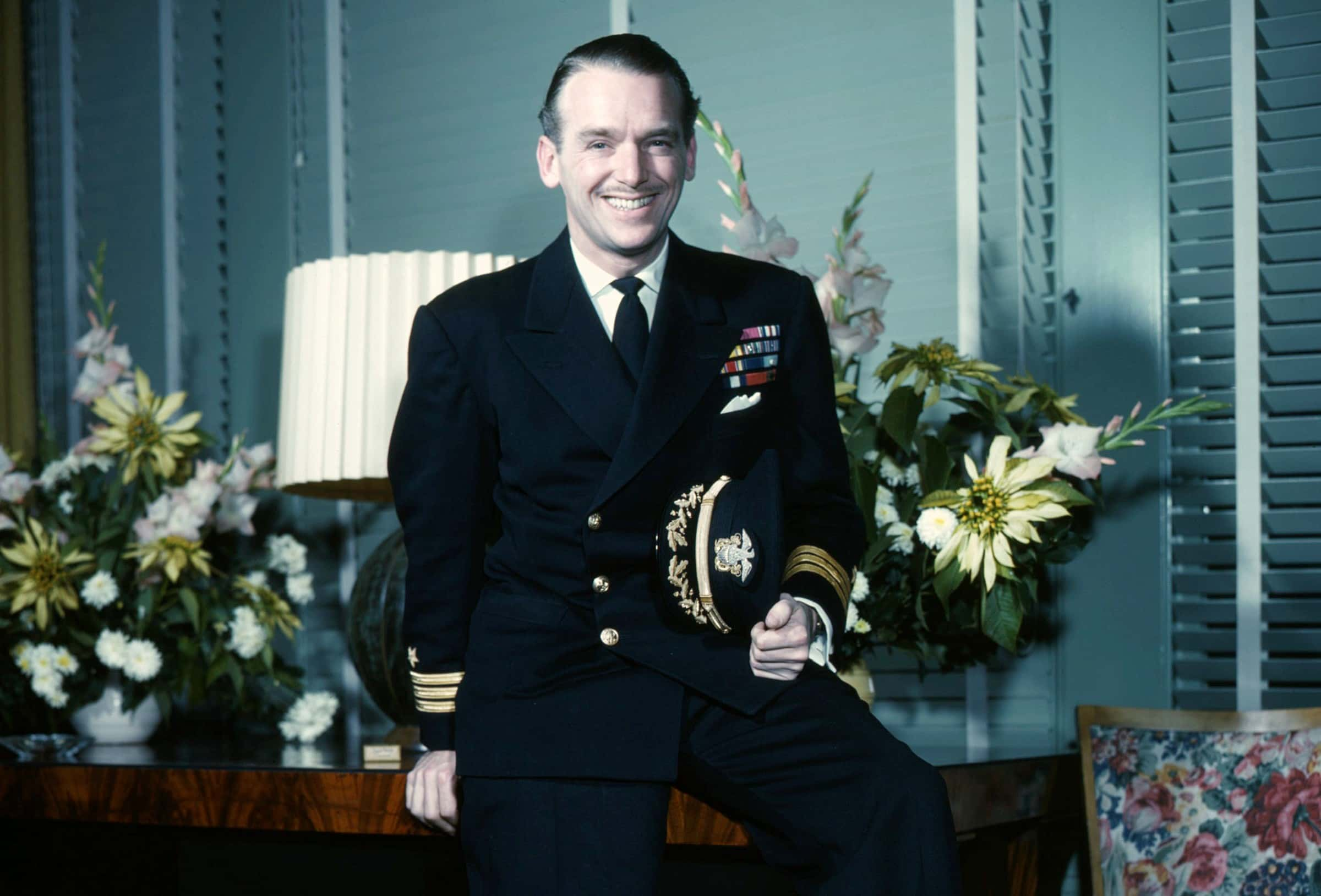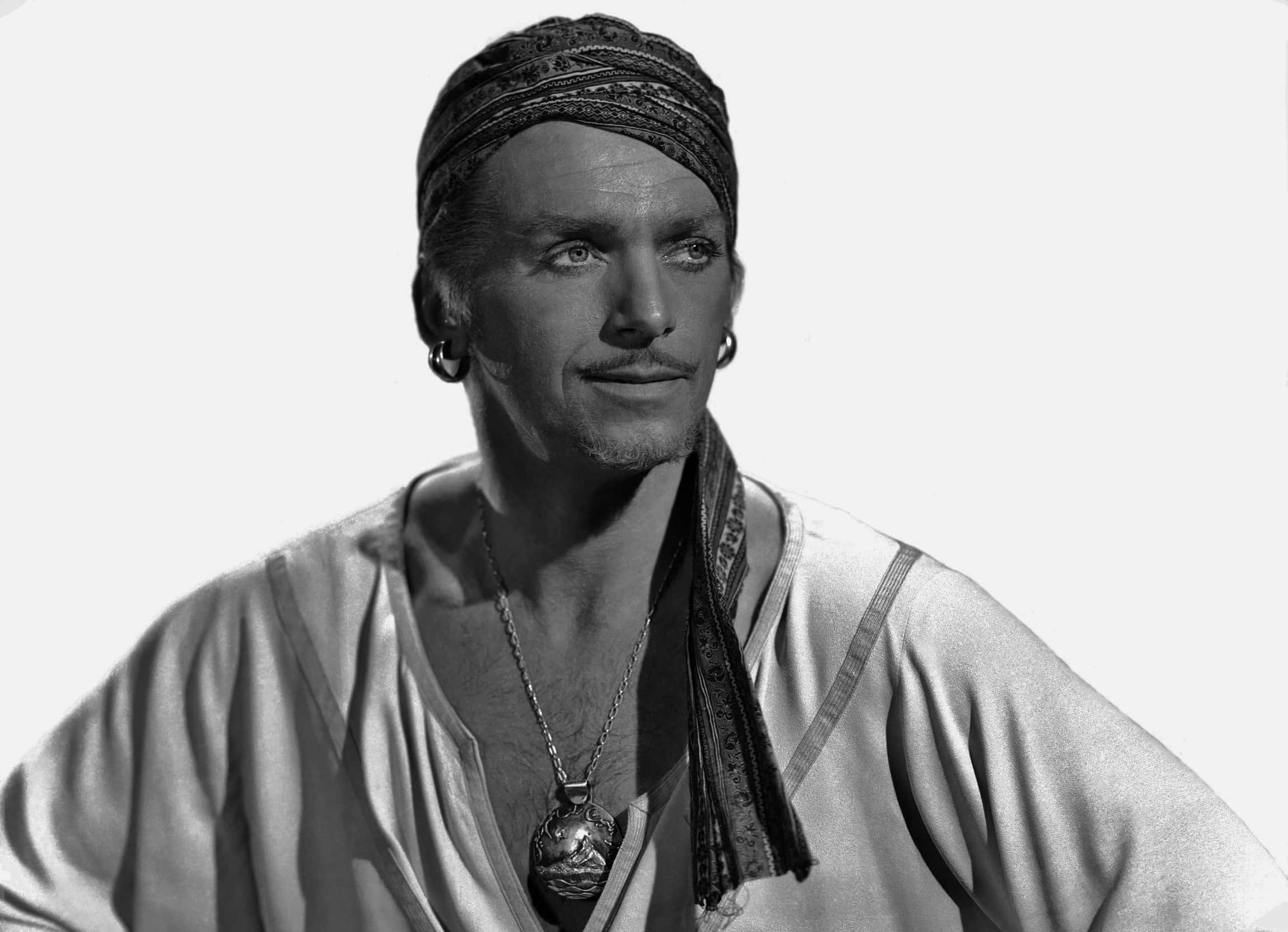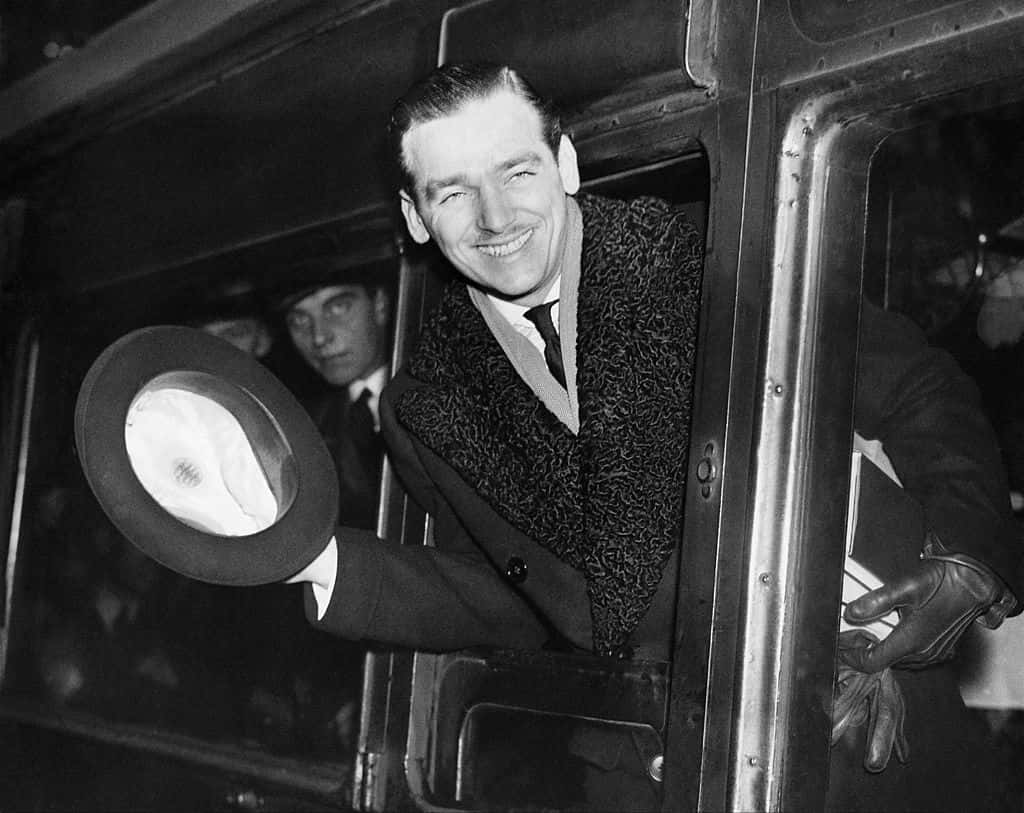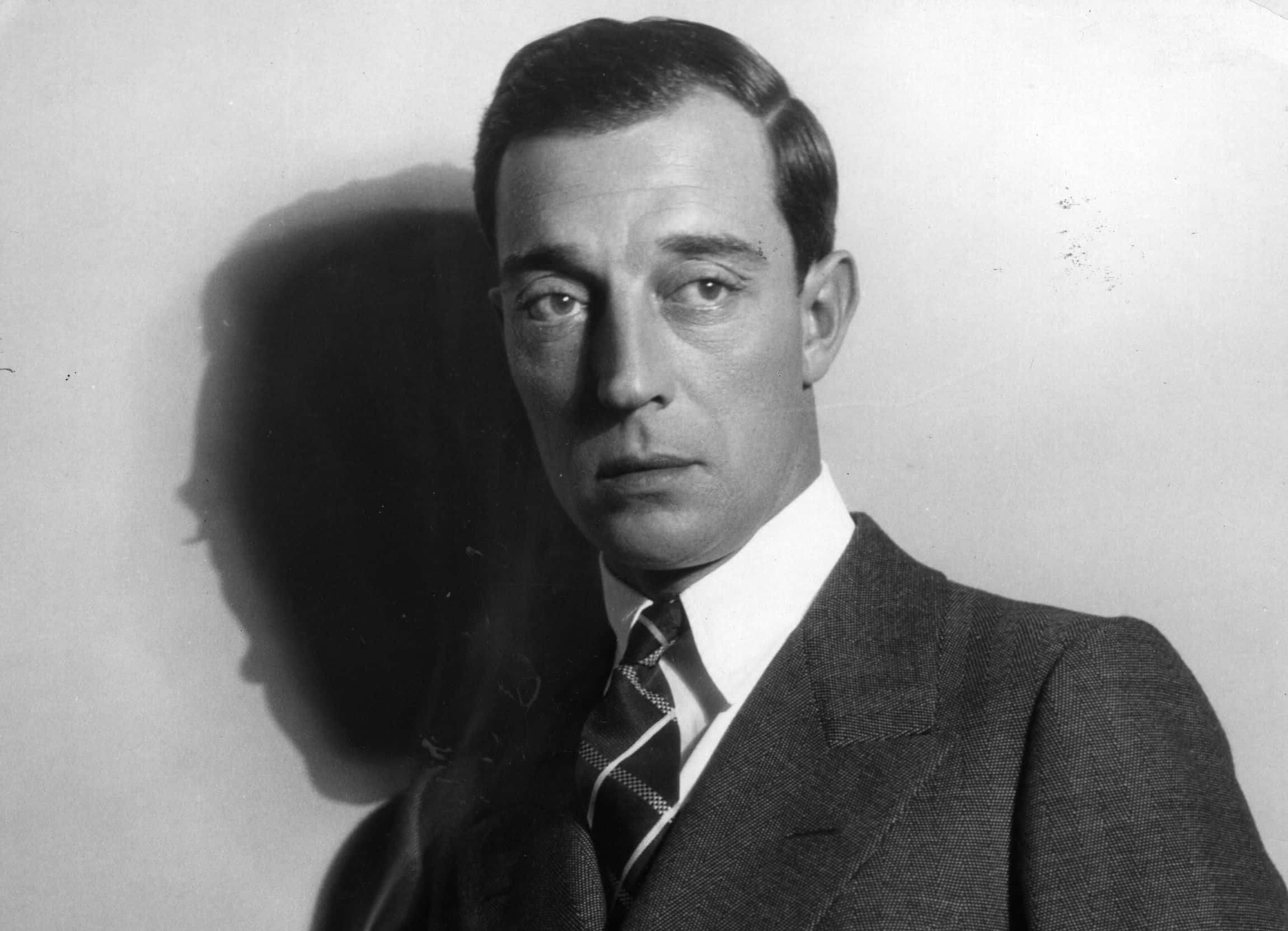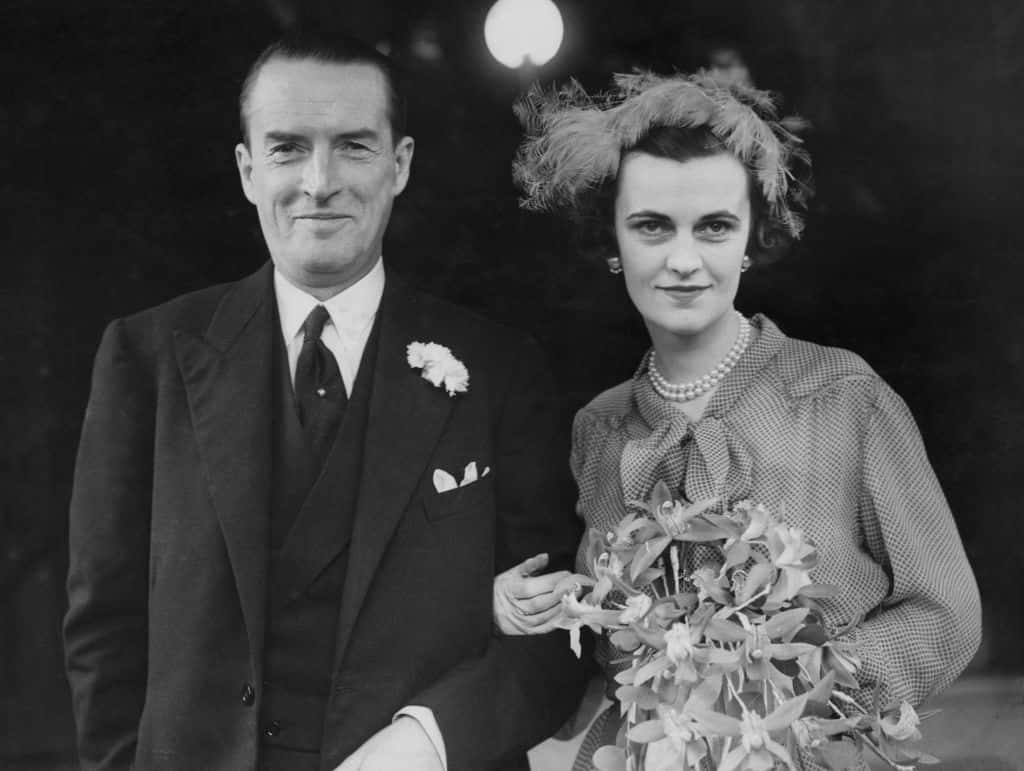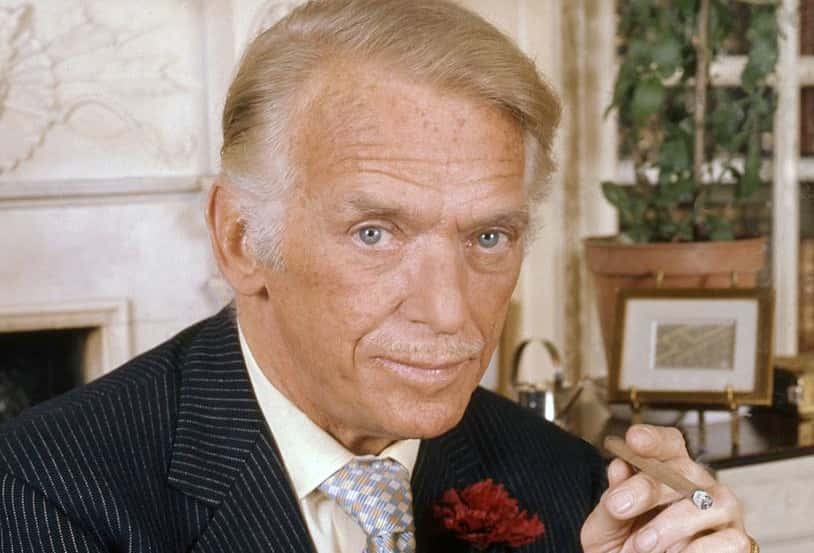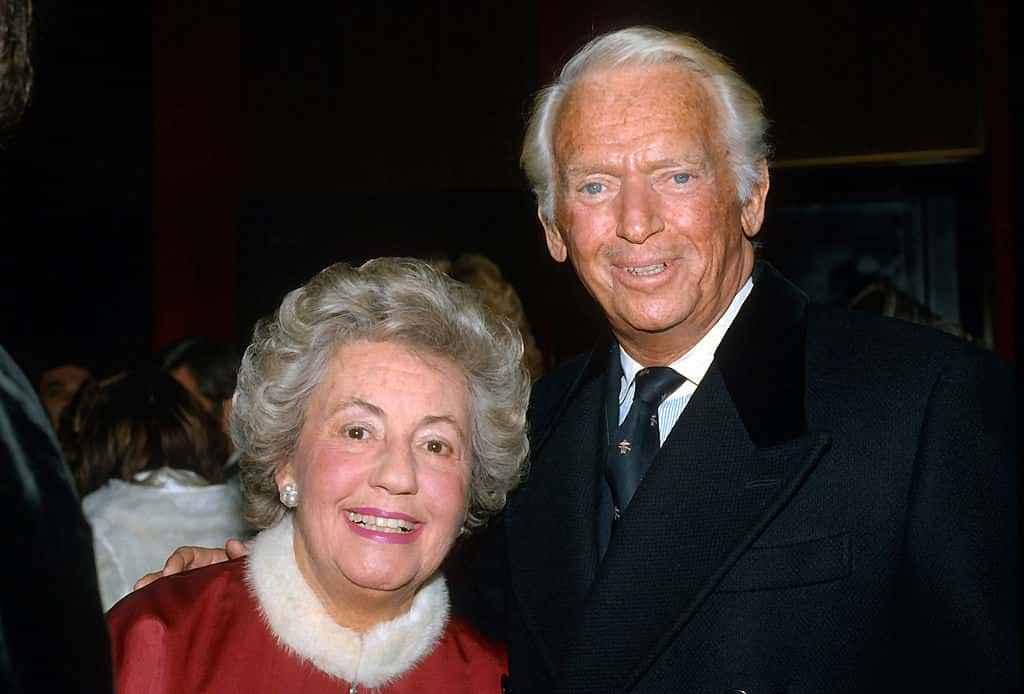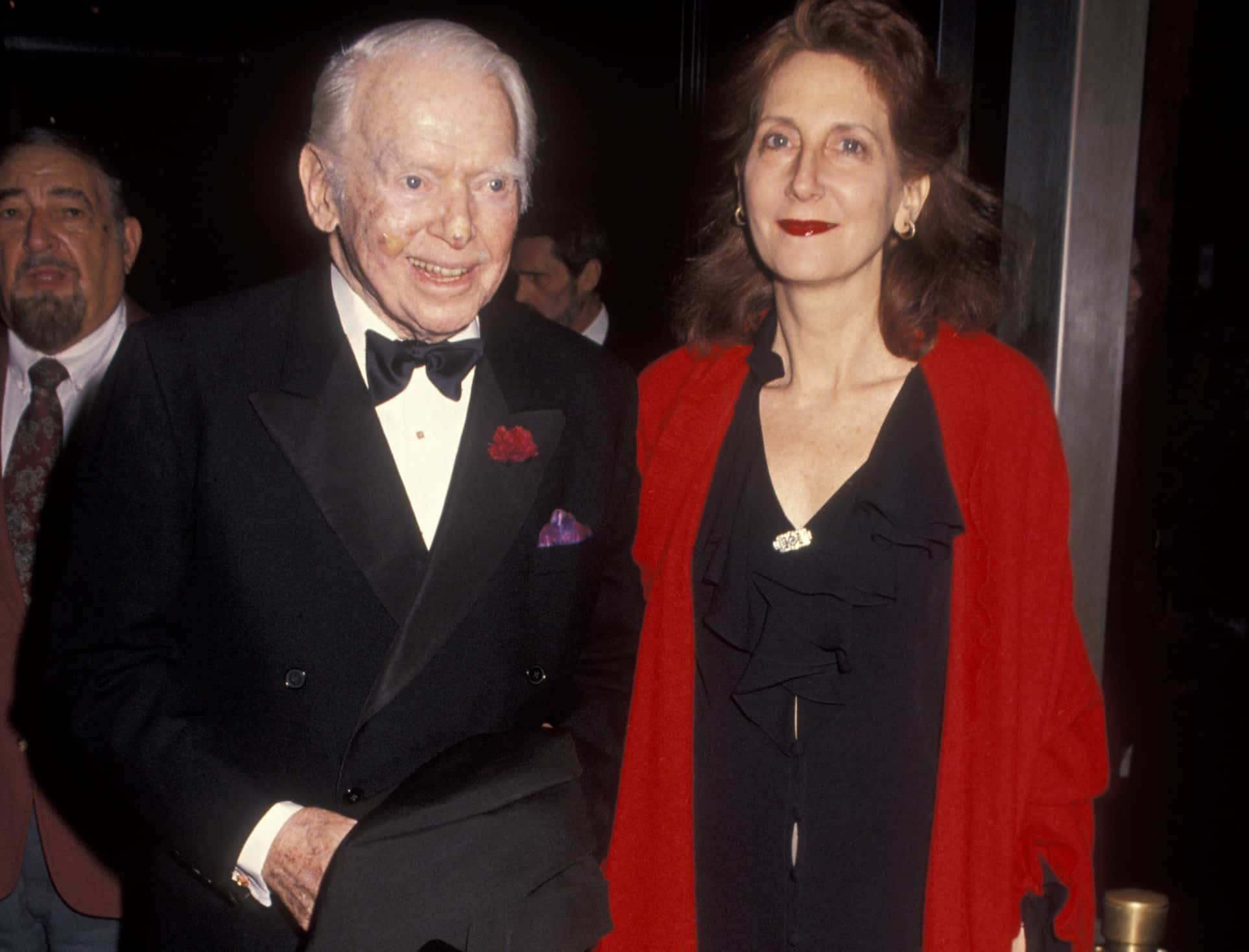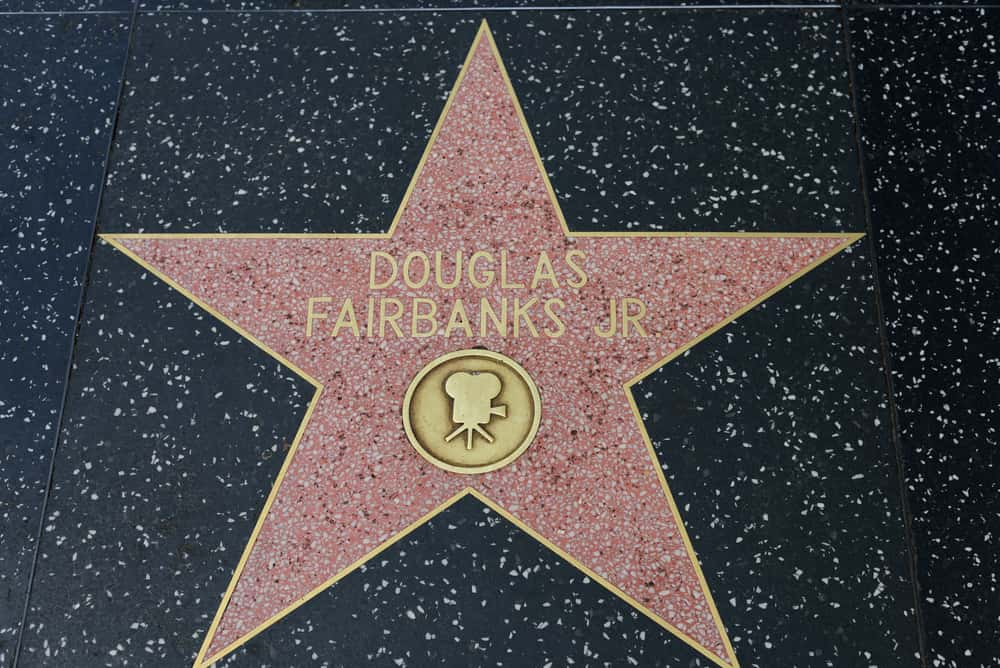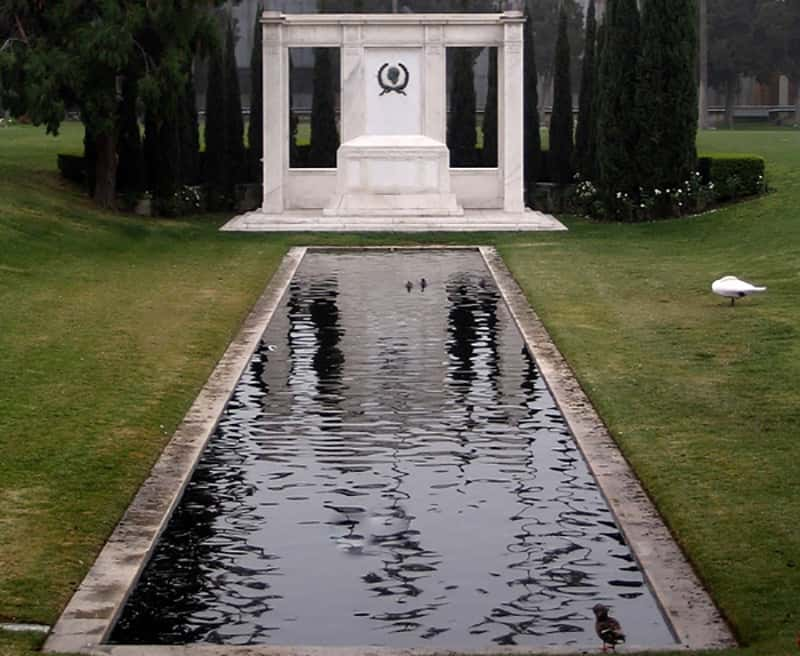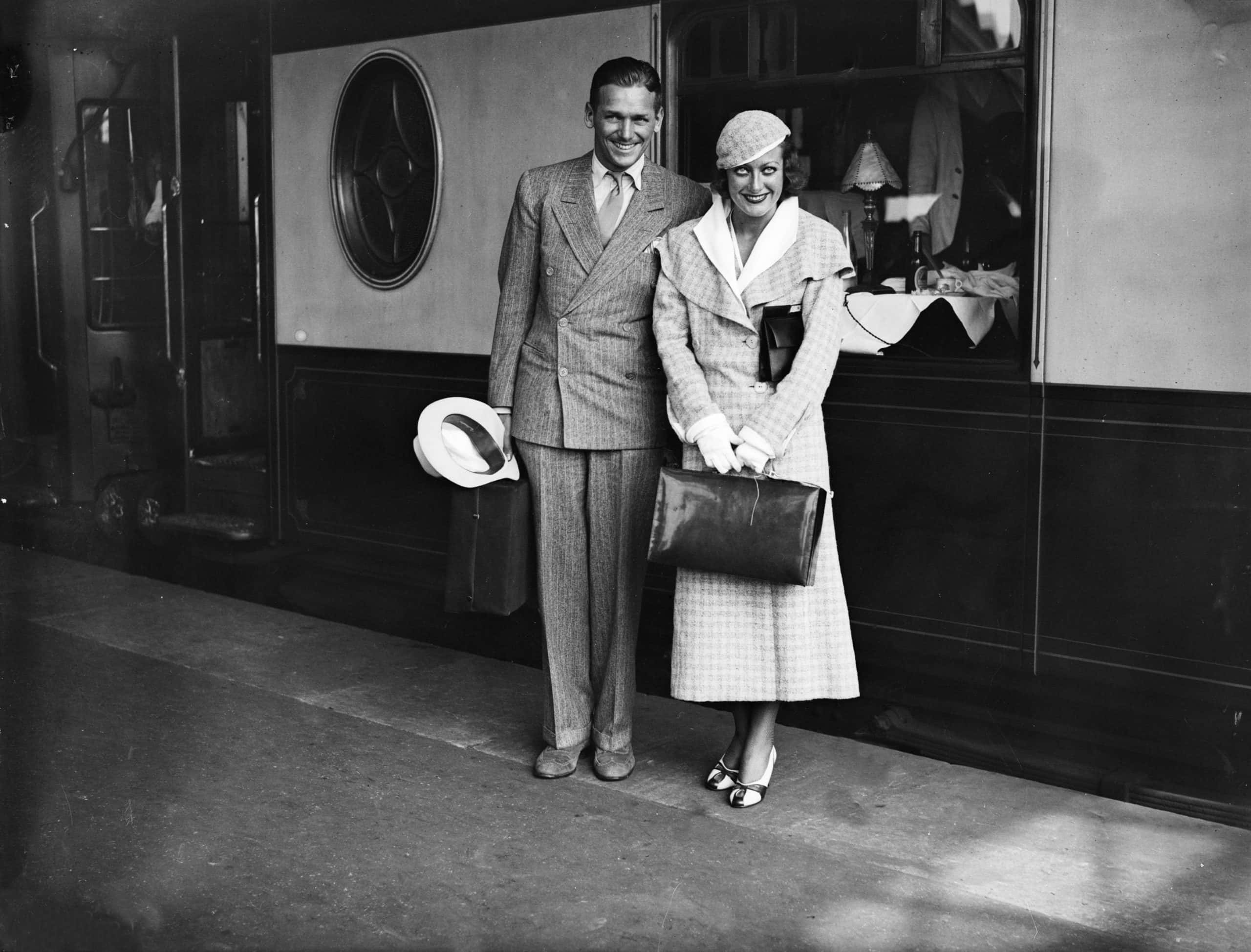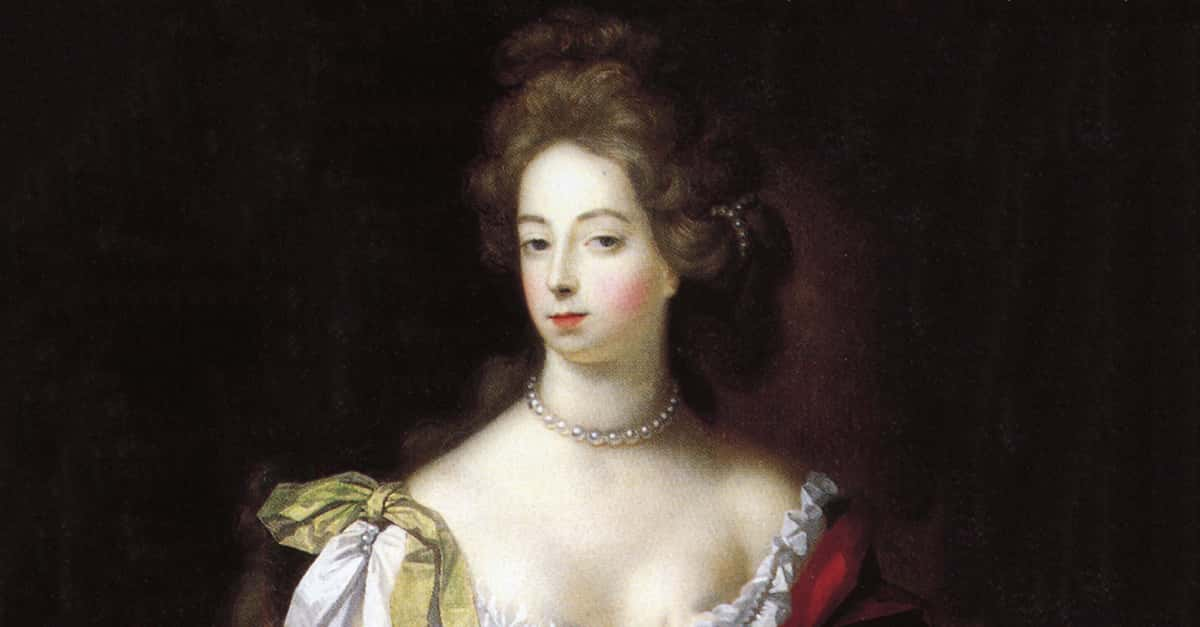Douglas Fairbanks Jr. always knew he had big shoes to fill: His father was Hollywood royalty; practically the first king of Hollywood. And being his namesake only doubled the pressure. But did he even want to follow dad’s footsteps? Would he live up to his legacy and earn his crown, or would he tarnish his name and watch his empire crash and burn? Let’s dive into the past and find out for ourselves.
1. He Was Born Rich
Douglas Fairbanks Jr. was born in 1909, in New York City. He came from wealth, as his mother Mary Pickford’s family was rich with a capital R. His dad, Douglas Fairbanks, was still new in the acting world and was taking a break from it to try his hand at the business when Fairbanks Jr. was born. He gave up on this plan pretty quickly—which meant a huge change in his son’s life, too.
2. He Made A Move
Douglas Fairbanks Jr. was still little when his dad went back to Broadway. He was still too young to really know what was happening—it was only when Daddy Fairbanks accepted a movie offer in California that he realized change was afoot. It didn’t upset him to leave New York though, because he couldn’t wait to see “real cowboys” and “real Indians.”
However, there was another, rather heartbreaking, reason he was so happy to follow dad to a new place.
3. He Had An Odd Nickname
Naturally, one would assume everyone would call him Junior, but instead, everyone knew Douglas Fairbanks Jr. as “Bye”—and there was a tragic meaning behind this nickname. This was because his dad—who admitted that he had “no more paternal feelings than a tiger in the jungle with his cub”—addressed him as “Boy” all the time, instead of his real name. Over time, this morphed into “Bye.”
Fairbanks secretly loved having his dad around, which is why he was happy to move to L.A. Later, he discovered there may have been a simple reason why his dad wasn’t too keen on spending a lot of time with him.
4. He Got Overlooked
In his autobiography, Fairbanks is very matter-of-fact about the fact that his “chubbiness” may have contributed to driving his dad away from him. In another example of being Father of the Year, his dad took away the same pony he’d given to Fairbanks as a gift and presented it to Prince Hirohito of Japan. Perhaps all this indifference encouraged Fairbanks to adopt a similar attitude when his parents made yet another decision to turn his world upside down.
5. His Life Changed
Douglas Fairbanks Jr. was only nine when his entire life was ripped out from under him. After years of tension and strife, his parents decided to call it quits on their marriage. He moved back to New York with his mom, who eventually remarried some years later. He started going to a private school and was soon doing well in both academics and sports.
But still, the memories of seeing his parents on Hollywood sets haunted him.
6. He Was Talented
Not only was Fairbanks doing a great job at school, but he also discovered a passion for the arts. He put his paintings and sculptures on exhibition when he was only 13 years old. But there was another, a much bigger milestone he hit at the same age too. Not sure about you, but I’m certain I was pretty much just getting through the day at 13.
7. He Got An Opportunity
By the time he was 13, Fairbanks Jr. was well aware his last name was like royalty in Hollywood. His dad was the reigning king of silent films at the time, so it wasn’t a huge surprise when Paramount Pictures reached out to the young boy, offering him the titular role in Stephen Steps Out. He accepted—but there was something he didn’t know.
There was a long-standing feud between his dad and Paramount. This, naturally, led to some not-so-desirable consequences.
8. It Didn’t Work Out As He’d Thought
Douglas Fairbanks Jr. soon discovered his dad was furious he’d accepted the film. They had a huge fight about it, but Jr. didn’t back down. He later admitted he’d done it for the money as the divorce had been anything but amicable and, as he said, “Mother and I needed to eat.” If nothing else, he did get some breathing space from the money the studio gave him.
At this point, he realized he needed some more time and a better plan before jumped into the industry.
9. He Postponed His Plans
Remember how Douglas Fairbanks Jr.’s dad hadn’t been on his board with his decision to join Hollywood? Well, he wasn’t kidding—and he gave Fairbanks Jr. a chilling ultimatum. He told his son he’d cut him from his will if he didn’t change his mind. Well, the apple didn’t fall too far from the tree, and Fairbanks Jr. was just as stubborn as his dad.
He took a step back and joined his mother in Paris to continue his studies for a bit. However, he’d be back in L.A. in a couple of years, determined to make it without his father’s help.
10. He Came To Hollywood
Well, Fairbanks Jr. wasn’t going to get a small thing like parental disapproval stand in the way of his dreams. returned to Hollywood two years later, planning to put in the hours to succeed. He put his plan in action by starting off as a camera assistant. He also grabbed any opportunity to play any small roles he could get. Eventually, his hard work paid off and he got a bigger part, as a juvenile lead in Stella Dallas.
The film did well and it looked like Fairbanks was already on the right path at only 16—but there was still some struggle ahead, as we’ll see.
 Stella Dallas (1925), United Artists
Stella Dallas (1925), United Artists
11. His Luck Changed
Of course, Douglas Fairbanks Jr. had a point to prove. He wanted to show his dad that he could make it big without his help. So he turned to another medium, hoping his success there would translate into better luck with films. Fortunately, he was right. His play, Young Woodley, did really well, and it changed his life in more ways than one.
12. Cupid Struck Him
There may have been more than one lady in the audience whom Fairbanks impressed with his good looks and talent, but there was only one who actually did something about it. Joan Crawford was an up-and-coming star herself, who never missed an opportunity for self-promotion. She went to the play hoping to meet Hollywood royalty Fairbanks Sr., but ended up losing her heart to the son.
The rest, as they say, is history.
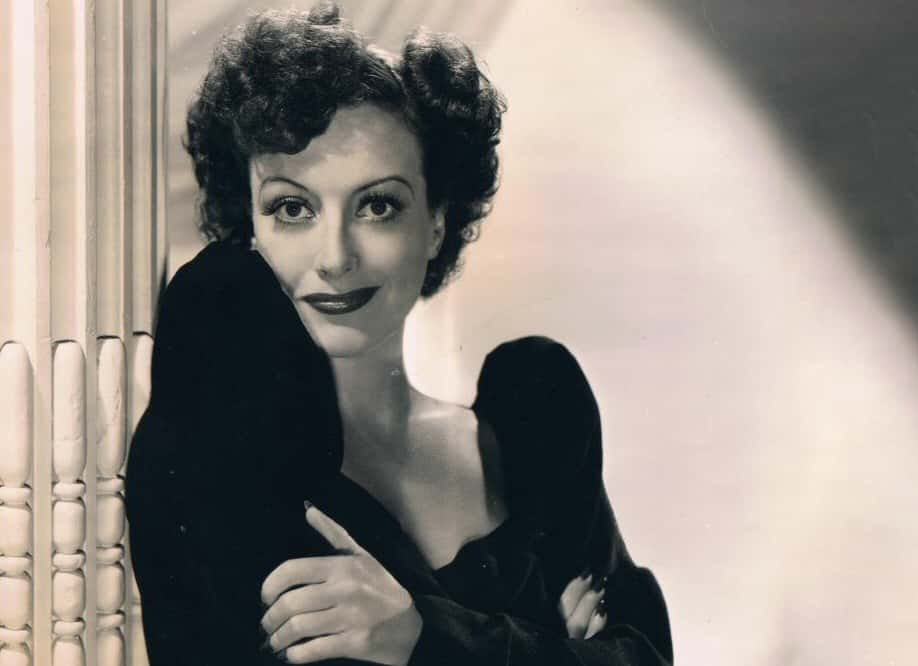 Wikimedia Commons
Wikimedia Commons
13. He Found Love
Could any 18-year-old boy resist the charms of a young, beautiful girl? Crawford was four years older than Fairbanks, but neither of them considered the age difference a problem. They began talking to each other and promptly fell head over heels in love. They made no secret of their relationship either—but not everyone shared their joy when they found out about it.
14. He Faced Disapproval
A young and good-looking couple, so obviously in love, is bound to win people’s hearts. But Fairbanks Jr. was in for a brutal disappointment. His famous parents did not share his feelings for Joan. His father called her a “cradle-snatcher” and “opportunist.” He was certain her feelings for his son were a ploy to help her make a strong entry in Hollywood.
Sadly for Fairbanks Jr., even his doting mother disapproved of his lady love, and referred to her as her son’s “current chorus-girl fling.” Ouch. Not everyone was so harsh though, and their relationship soon led them towards a great professional opportunity.
15. He Worked With Her
Of course, Hollywood was eager to cash in on the Fairbanks-Crawford relationship. They were soon cast in Our Modern Maidens (1929) opposite each other. This was Crawford’s first lead role, so I’m thinking Daddy Fairbanks might have had a point? Fairbanks Jr. said in retrospect it felt like an “exploitation stunt,” though he did enjoy working with his lady love.
Luckily for them both, the film was a huge hit. For a while, it seemed like they’d have a happy ending in real life too.
 Our Modern Maidens (1929), MGM
Our Modern Maidens (1929), MGM
16. He Vowed To Stay
Soon after their successful first film together, the happy couple tied the knot. Fairbanks was just 19 at the time. They were so obviously in love that they even got in trouble with Daddy Fairbanks when he invited him to his house and caught them “canoodling” in a dark corner. For the next couple of years, it seemed like things were working out just fine for the young Douglas Fairbanks Jr. and his beautiful wife.
But how long would the honeymoon last?
17. His Star Was Rising
Hollywood was finally taking Fairbanks Jr. seriously. He appeared in several films during the late 20s and early 30s. These included silent films with him as the lead, such as Modern Mothers, Dead Man’s Curve, and Power of the Press. But the high point was that he got cast opposite Greta Garbo in his first “talkie,” A Woman of Affairs, and got billing over Loretta Young in Fast Life. And he didn’t stop there…
18. He Was Almost Ignored
Little Caeser was one of Fairbanks Jr.’s great successes of 1930, but he almost didn’t get that role initially. He ended up playing the second lead in the film but was almost passed over because at first, the producers considered Clark Gable for the part. They chose to go with Fairbanks for a very unusual reason. They felt Gable’s ears were too big.
This wouldn’t be the last time Gable and Fairbanks would cross paths though.
19. He Went Through Some Rocky Times
Not too long after they made it official, Fairbanks & Crawford’s honeymoon period came to a crashing stop. Crawford became super busy with her work; she spent long hours on set and wasn’t as keen to whisper sweet nothings to her husband as she’d been before. The reason, as Fairbanks would discover much later on, was Clark Gable.
However, Crawford put up a loving-but-busy front initially, and even agreed to go on a belated honeymoon once her filming ended.
20. He Was Fascinated By Europe
Two years after their wedding, Crawford agreed to go on a European honeymoon. Fairbanks was over the moon. The MGM studios funded their trip, for publicity purposes and also in the hope that the couple would work past their differences so the Gable-Crawford saga didn’t become public knowledge. While our boy Doug loved his time on the ship, his wife did not share his sentiments.
She put up an act that she enjoyed herself, but couldn’t wait to go back to California and to her own comfort zone. But did that comfort zone still include her husband?
21. He Discovered Some Unpleasant Truths
Fairbanks returned home with his wife to discover that she’d decided they would live separately under the same roof—but that’s not the worst part. She accused him of having affairs behind her back but claimed she wanted them to work on their relationship. It was a huge shock for him when his agent arrived one afternoon to ask him to move out.
It was only after he moved out that Fairbanks discovered the truth about his wife’s affair.
22. He Moved On
While Fairbanks was unhappy with the way things turned out with Crawford, he seemed to bounce back pretty quick. He reconnected with his father, who seemed to rely on him more and more. They went to England together, where he also reconnected with an old crush, Gertrude Lawrence, who seemed to enjoy his attentions and flirtation.
And to top it all off, he got a big part in The Rise of Catherine the Great, which went on to do well at the box office. Perhaps that was one reason he decided to stay back in England for a while…but there was one other major reason too.
23. Hollywood Was Unhappy With Him
While Fairbanks Jr. was a big fan of Europe, there was another reason why he was so delighted to make a trip there with his dad. Warner had fired him, and he didn’t have a current contract in Hollywood. This happened after he refused to take a 50% pay cut because of the Great Depression. The company got upset with his stance and asked him to leave.
It was a dire time—and disaster was on the horizon.
24. He Fell Ill
Before Fairbanks went back to England to start filming for Catherine, he fell seriously ill. He caught the flu and the 104-degree fever knocked him out and lasted quite a few days—and the consequences were devastating. Paramount replaced him in Design for Living, which he’d been very excited to shoot before work seriously began on Catherine.
In fact, he was so sick that the doctor suggested giving up on Catherine too. But Fairbanks somehow willed himself to get well enough to get back to England…and back to his old flame, Gertrude Lawrence.
25. He Kept Distinguished Company
In his time in England, Fairbanks Jr. made many friends and hung out with many distinguished people. Apart from theater and film royalty, he also got to know some true royals. He met Prince George for the first time when he traveled to England for his disastrous honeymoon and they would often run into each other afterward as the young royal got around quite a bit.
However, he soon discovered that knowing the Prince didn’t mean he was above the law.
26. He Didn’t Get Away With Much
Young Doug was driving Prince George somewhere once, and stepping on the gas pretty heavily, thinking he could get away with it because of his royal passenger, but boy was he wrong. A cop soon stopped their speeding car, and the prince sunk low in his seat, so the officer didn’t even notice him. With a new ticket to his name, our boy Doug drove much more carefully to drop his royal passenger at his destination.
27. He Set Up His Company
Still involved with Lawrence, and living well beyond his means, Fairbanks Jr. nevertheless scraped enough money together to start his own production company in England. Named Criterion Films, the company produced three ventures. The first, The Amateur Gentleman, was a hit. Even his father came to watch him shoot for it on set with Lord and Lady Mountbatten.
The huge set suitably impressed him—but soon enough, reality cut Fairbanks Jr. down. Criterion’s next two productions flopped, so Fairbanks decided to cut his losses and quit after the third film. All too well, as something exciting came up soon after.
28. He Got An Offer
Fairbanks Jr. had generally steered clear of films that reminded him of his father’s on-screen work. He felt there was no way he could do adventure better than his dad, so he never tried. However, when an offer to play villain Rupert of Hentzau in Prisoner of Zenda came his way, he didn’t decline immediately. And he may have had a push in the right direction from important quarters.
29. He Took The Leap
Estranged since Fairbanks Sr.’s third marriage, young Doug nevertheless went to him for advice. His dad convinced him that missing out on the main role and getting the villain’s role was a blessing in disguise as “Rupert of Hentzau is probably one of the best villains ever written.” This convinced young Fairbanks. He was finally ready to go back to Hollywood.
And things were looking up on the personal front too.
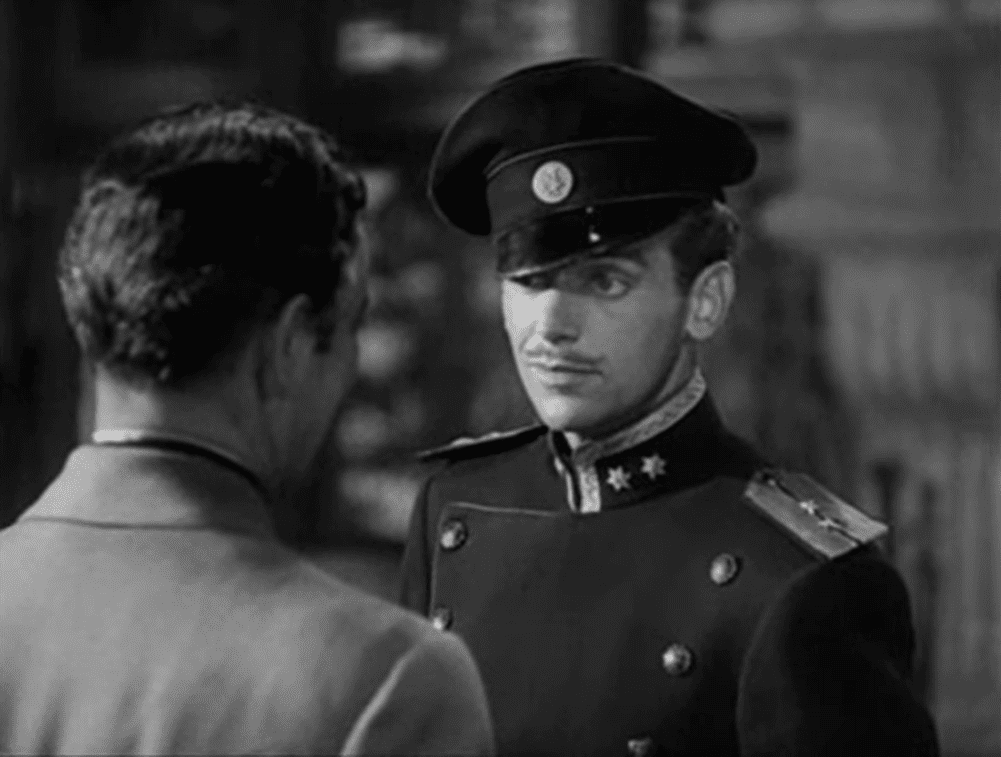 The Prisoner of Zenda (1937), Selznick International Pictures
The Prisoner of Zenda (1937), Selznick International Pictures
30. His Love Life Evolved
After his divorce from Crawford, Fairbanks had been seriously involved with a few other women, most notably Gertrude Lawrence and Marlene Dietrich. The latter affair he tried to keep under wraps—sometimes with a daring feat or two. To keep it secret, Fairbanks Jr. would occasionally have to sneak out of her hotel room via the fire escape.
He admitted that commitment scared him as he’d never been faithful to anyone—but that was before he met the love of his life.
31. He Had A Happily-Ever-After
Fairbanks met Mary Lee at a house party and was instantly captivated by her “large, shining dark eyes” and “full, beautifully-carved red mouth.” Her bubbly and chatty demeanor only heightened his feelings for her. However, he was cautious in courting her because even though she was separated, her husband had been an ex-schoolmate.
Luckily for Doug, the husband himself pressed for a divorce and so he could marry his lady-love without feeling guilty about it. There were some other details to iron out before the wedding though.
32. His Marriage Was Unconventional
Initially, both Mary Lee and Doug avoided talking about marriage because she was still going through her divorce. Eventually, when they settled on a date there were some tiny hiccups. For starters, the groom-to-be did not want anyone to think he was a fortune hunter, so he strictly forbade his bride-to-be to spend her money on anything except herself and their children, if they had any.
Their married life started happily enough, though there would soon be other challenges.
33. His Status Changed
When Mary Lee got pregnant, Fairbanks Jr. was over the moon to become a father. He shared the news slightly hesitantly with his dad, unsure whether he’d appreciate becoming a grandfather. Happily, he found him to be just as delighted. He was very attentive towards his daughter-in-law. Eventually, Fairbanks Jr. became a father—and that wasn’t the only change in his life.
34. He Changed Paths
From making a conscious effort to not make films like his father, young Doug made an about-turn and started making more and more action and adventure films. Films like Gungadin (1939) and The Corsican Brothers (1941) were hugely successful. The latter was a tribute to his dad and the first film in which he deliberately tried to emulate his swashbuckler style.
Though he didn’t have any faith in it during its filming, it surprised him by doing so well at the box office. This was good news, considering the devastating event that took place not long before its release.
35. He Faced Loss
The Fairbanks men may not have enjoyed a close relationship during young Doug’s formative years, but that changed as he grew older. It wasn’t a conventional relationship, more like one between siblings, and towards the end, the roles reversed with Fairbanks Jr. feeling more like a father figure towards his dad. He was present at his father’s side after Fairbanks Sr. suffered a heart attack at age 56, and passed away the same night.
In spite of their sometimes-cold relationship, it felt like a monumental loss because “I had lost the one I had always most wished to please.”
36. He Stood Firmly For His Beliefs
The younger Fairbanks had a very strong anti-isolationist stand during WWII. He made impassioned speeches about the role he felt America should play and gained quite a few haters because of this. He was very close to President Franklin D. Roosevelt, who saw his potential—and sent him on an important mission for the country.
37. He Was A Born Diplomat
Perceiving his people skills, President Roosevelt sent Fairbanks Jr. as a special envoy to South America. While outwardly they advertised his trip as a goodwill excursion, to find out the Latin American public’s opinion about American films, Fairbanks Jr. was actually hiding an incredible secret. His real objective was to identify influential groups who might be turning towards the German ideology.
Fairbanks himself admitted later that if he hadn’t followed his father’s footsteps by default, thus ending up in Hollywood, he would have liked to be a diplomat.
38. He Was Active In Service
Eager to play his part in the War, Fairbanks Jr. enlisted himself in the Navy. He was part of Lord Mountbatten’s commando staff, and his biggest achievement was creating the US Navy Beach Jumpers—now known as Navy SEALs—to “simulate amphibious landings with very limited force.” His exploits won him many awards and recognition in the Navy.
39. He Was Recognized
Fairbanks Jr. may not have won awards in Hollywood, but his bravery and clever strategizing won him many medals and awards during the war. He won the US Navy’s Legion of Merit, the British Distinguished Service Cross, as well as the Italian War Cross for Military Valor among others. So while being on active duty probably wasn’t the most pleasant experience of his life, Fairbanks certainly put his heart and soul into the service of his country.
40. He Came Back To Hollywood
After he came back, Fairbanks needed a vehicle to announce him back to the public too—but he was in for a brutal blow. He chose Sinbad the Sailor, which came out in 1947, to a lukewarm response. He tried a few more swashbucklers such as The Exile and The Fighting O’Flynn. Unfortunately, none of them did too well at the box office.
41. He Made A Move
Douglas Fairbanks Jr. had always loved Europe. From the time he spent in Paris as a young child, to when he went on his disastrous honeymoon, to later on as well. One of the medals he received was from King George in 1949. He made our boy Doug an Honorary Knight Commander of the Order of the British Empire. Oof, what mouthful!
Doug’s happiness knew no bounds. A confirmed Anglophile, he moved to England in the early 1950s and ended up staying there for over 20 years. He would eventually move to Florida in 1973.
42. He Favored A New Medium
While young Doug had worked mostly in films so far, he found that changing after WWII. He performed much more regularly on stage, and on television. He created a series titled Douglas Fairbanks Jr. Presents. Every episode lasted about half an hour, and Fairbanks would appear in most of them himself. The series starred many other famous actors, including Buster Keaton.
But then, people began to talk about him for other reasons…some not so savory.
43. He Was Part Of A Scandal
In 1963, Fairbanks Jr. found himself at the center of a shocking scandal. This time, it was because of the Duke of Argyll, who wanted to divorce his wife on grounds of infidelity. He had some incriminating pictures, with a headless man who he claimed was Fairbanks Jr. The latter denied this unequivocally and nothing was ever proven—but it still raised quite a few eyebrows.
44. He Was Also A Businessman
Douglas Fairbanks Jr. inherited his business acumen from his dad, Fairbanks Sr. He started many ventures alongside his acting career. These included a wide range of projects, from land development to ballpoint pen manufacturing. As if that wasn’t enough, Fairbanks Jr. was also a writer. He penned two autobiographies—giving away a fair handful of scandalous secrets from his time as a movie star.
45. He Was A Devoted Husband
Fairbanks Jr. remained true to his wife, Mary Lee, for the fifty years of their marriage. He was devoted to her and their three daughters—until a devastating turn of events. Mary Lee passed in 1988, leaving Doug, who was almost 80 himself by now, alone to mourn her loss. However, he wasn’t alone for too long.
46. He Remarried
Three years after he laid his wife of 50 years to rest, Douglas Fairbanks Jr. married a third time. His wife was Vera Shelton, and he remained with her until he passed, almost nine years later. His new wife had worked as a QVC merchandiser before she married him.
47. His Legacy Survives
Like his father, Fairbanks Jr. was devoted to the media industry. He earned three stars on the Hollywood Walk of Fame, for films, television, and radio. He may not have been actively working in showbiz towards the latter part of his life, but there is no mistaking his sincerity towards his craft and career when he did. And though he may never have been as popular or beloved as his dad, his filmography and achievements are testaments to the fact that he did not tarnish his name or legacy either.
48. He Had A Peaceful End
Douglas Fairbanks Jr. died in 2000, at the ripe old age of 90. He had a heart attack and passed quickly and quietly. His interment took place at the Hollywood Forever Cemetery in California, in the same tomb as his father’s. He left behind his wife of nine years, three daughters, and eight grandkids.
49. He Was No Saint Himself
Douglas Fairbanks Jr. certainly found Crawford’s sudden decision to file for a divorce shocking, but he hadn’t been a paragon of virtue himself either. In fact, he’d been hiding a dark secret. He admitted that he’d thought it was okay to have affairs as long as he was discrete, and didn’t embarrass his wife. And he wasn’t exactly languishing after Crawford left him either.
Sources: 1, 2, 3, 4, 5, 6, 7, 8, 9, 10, 11, 12, 13, 14, 15, 16, 17, 18, 19, 20, 21, 22, 23, 24, 25, 26, 27, 28, 29

